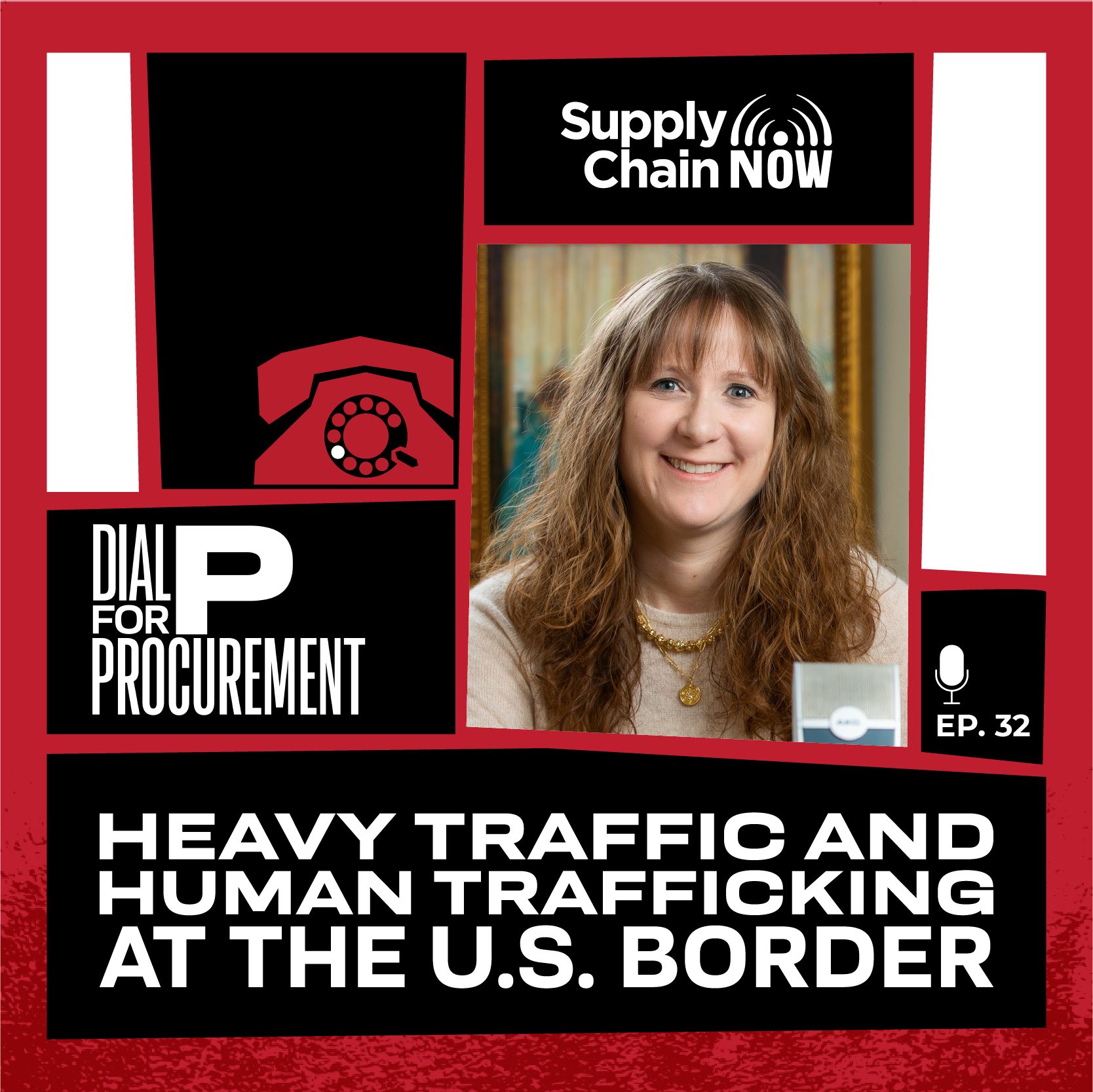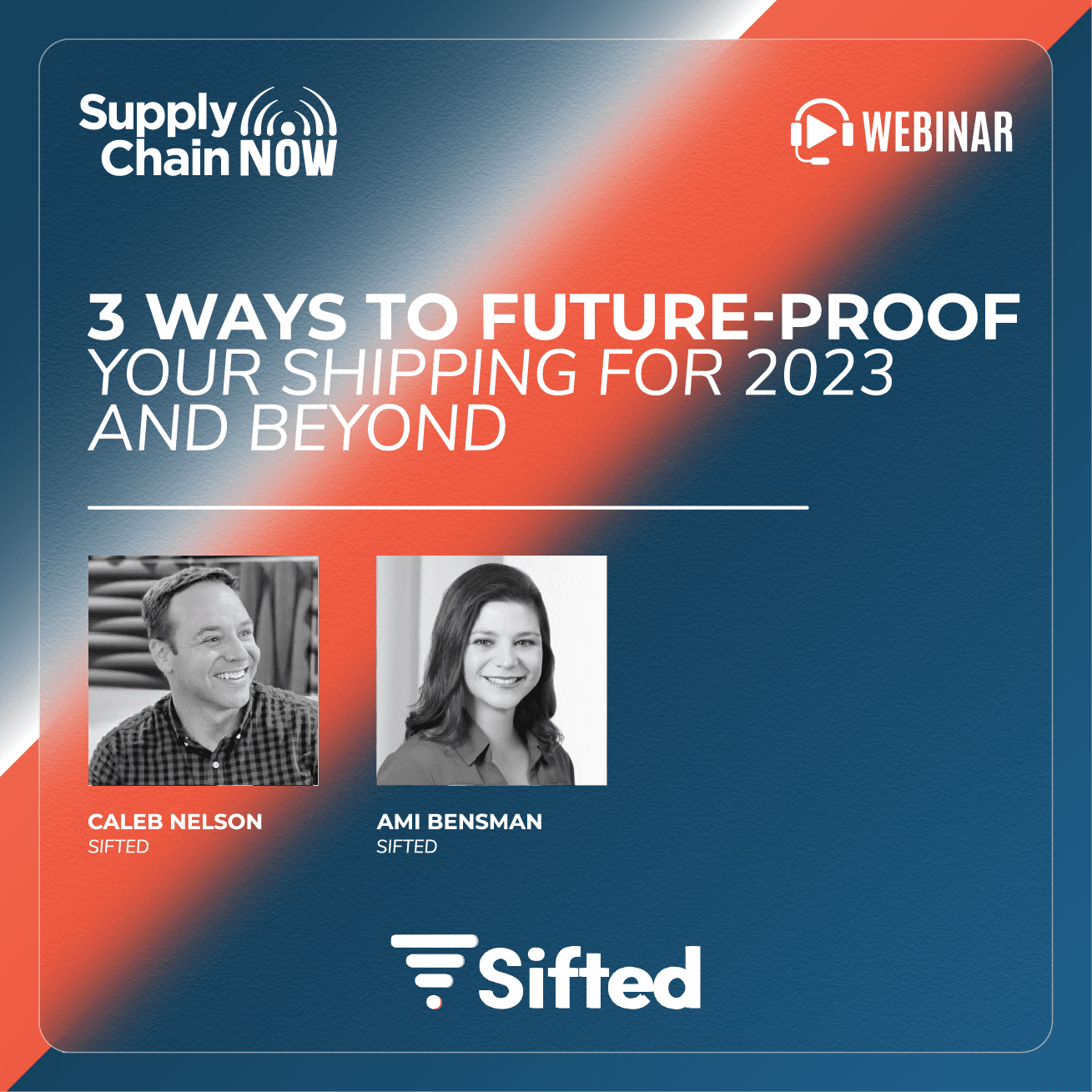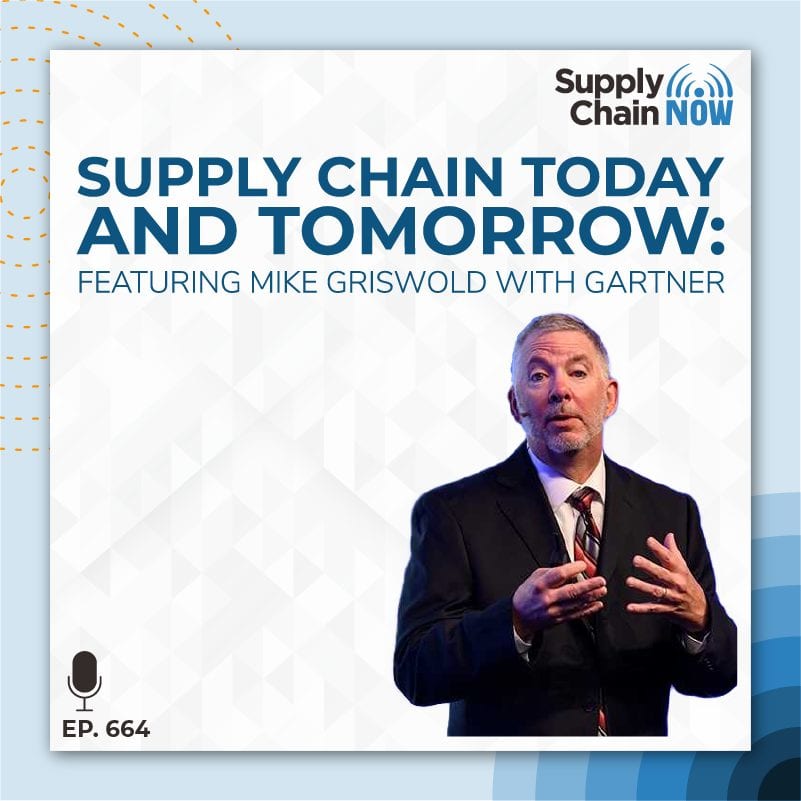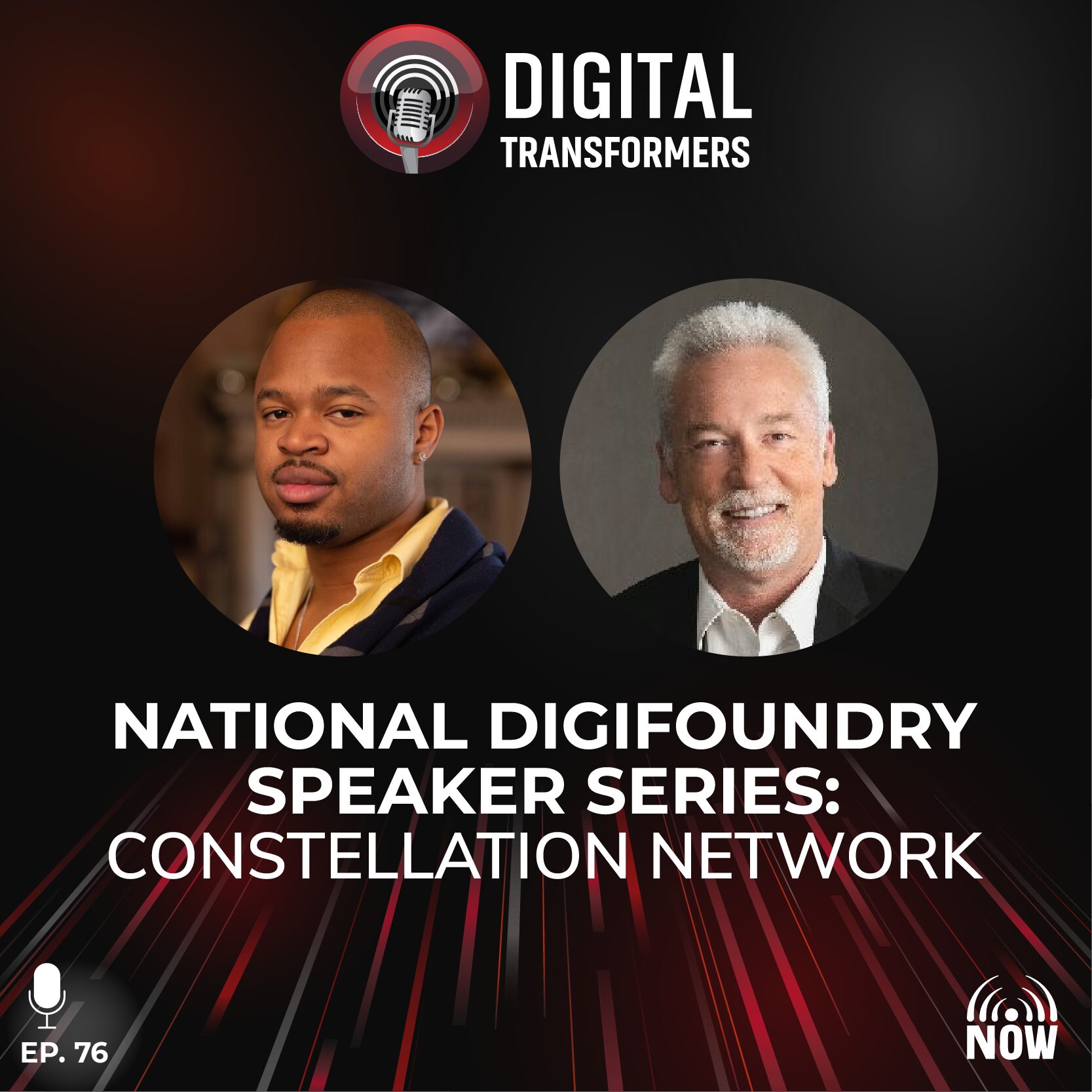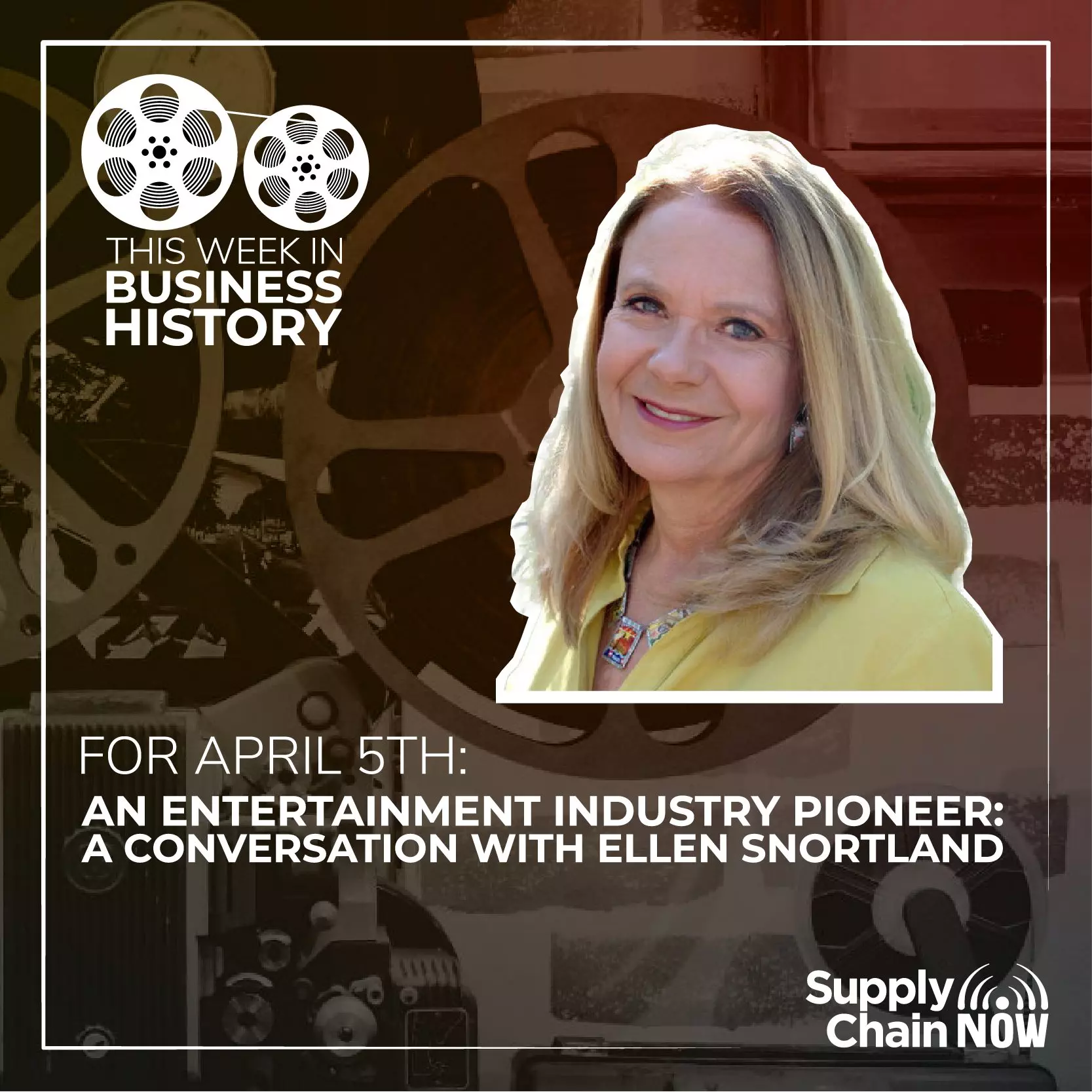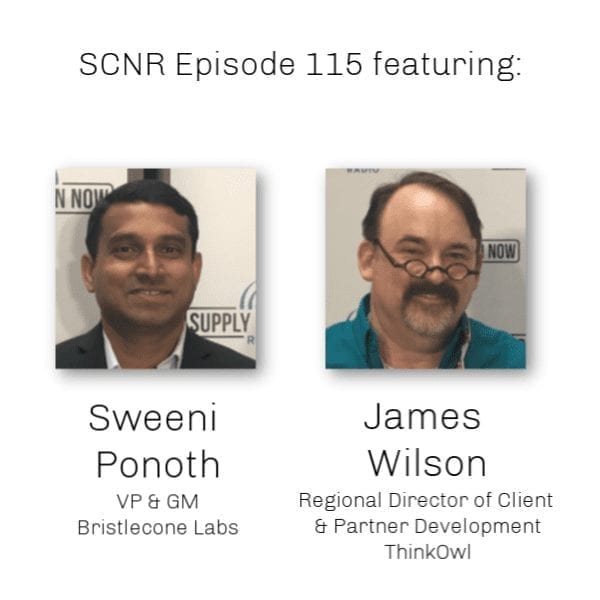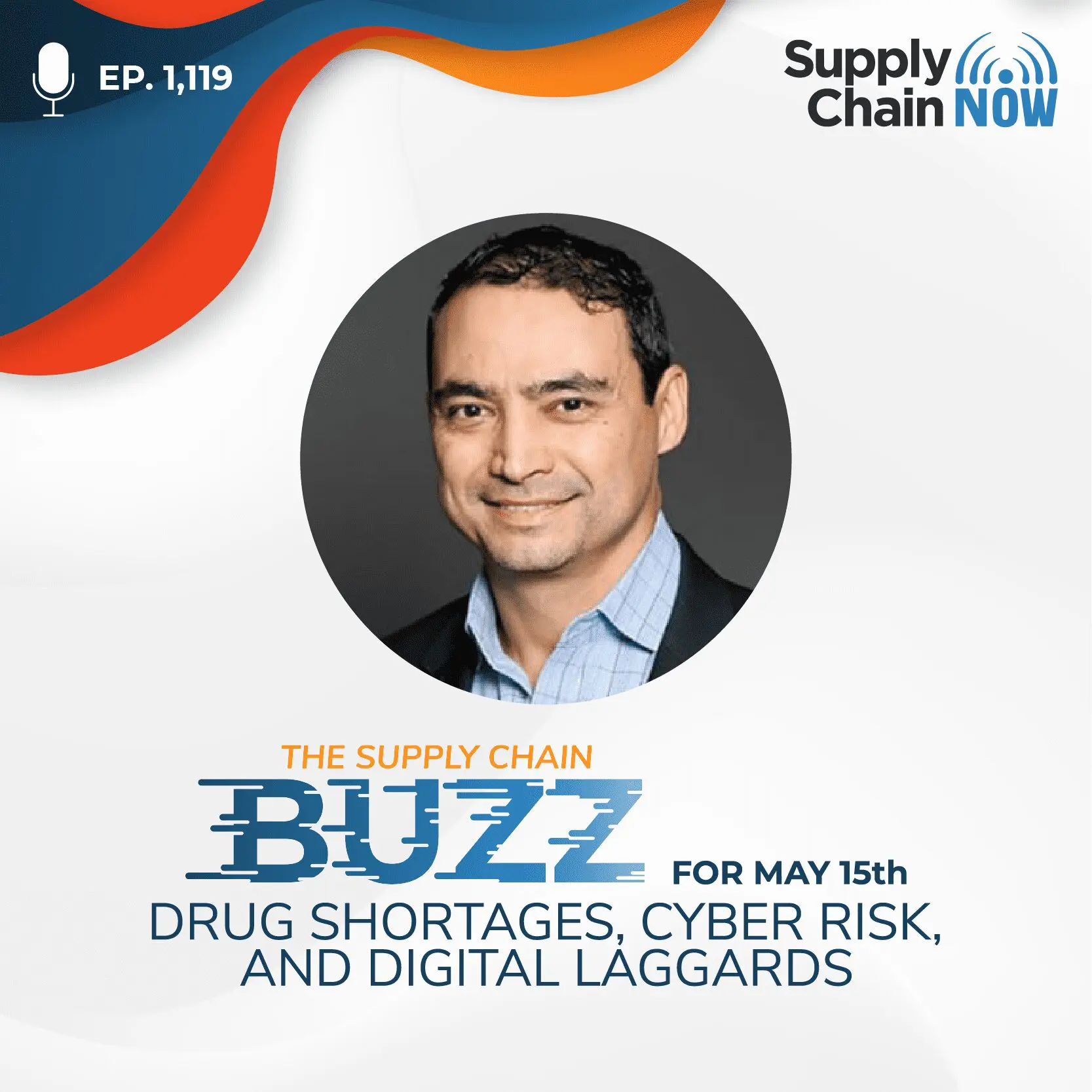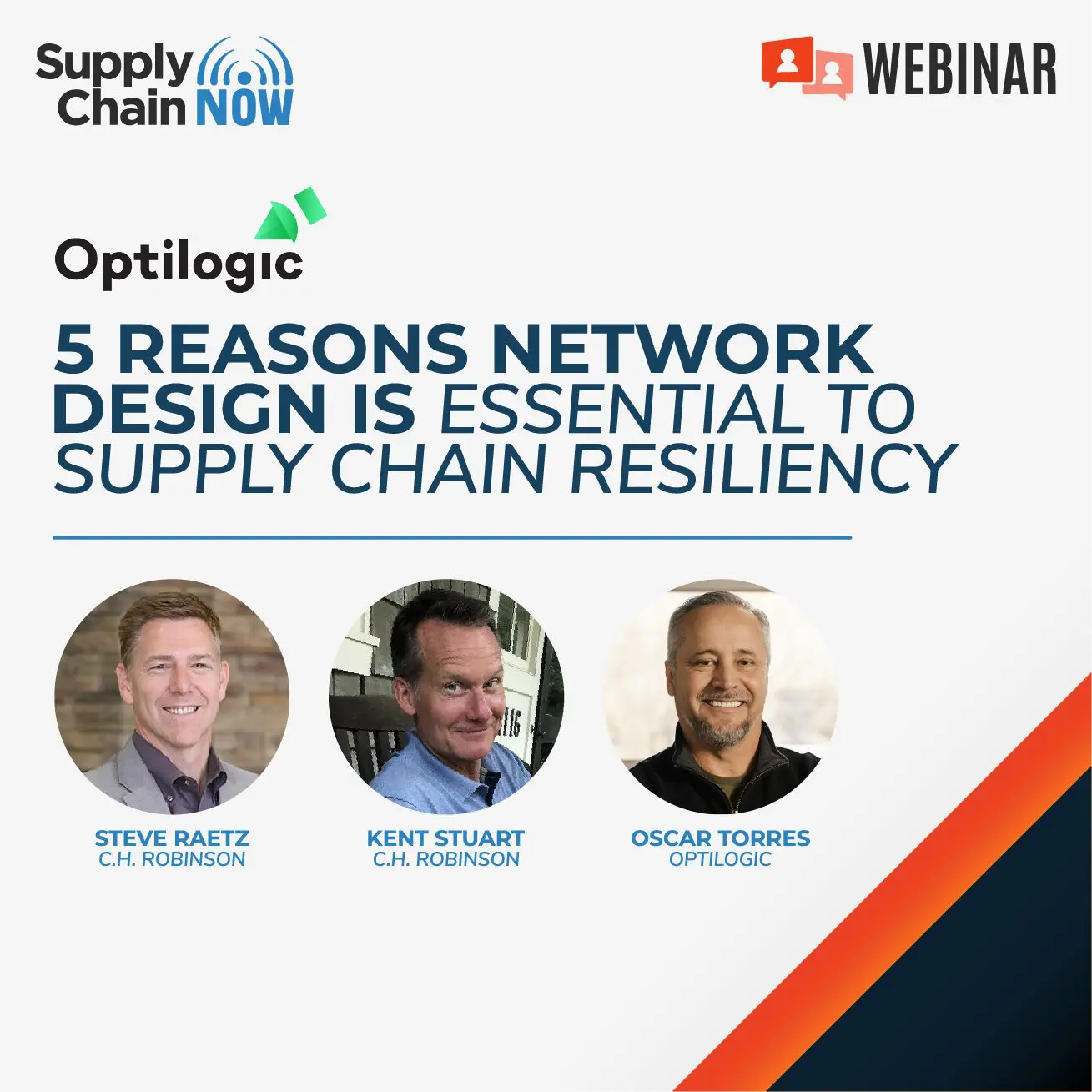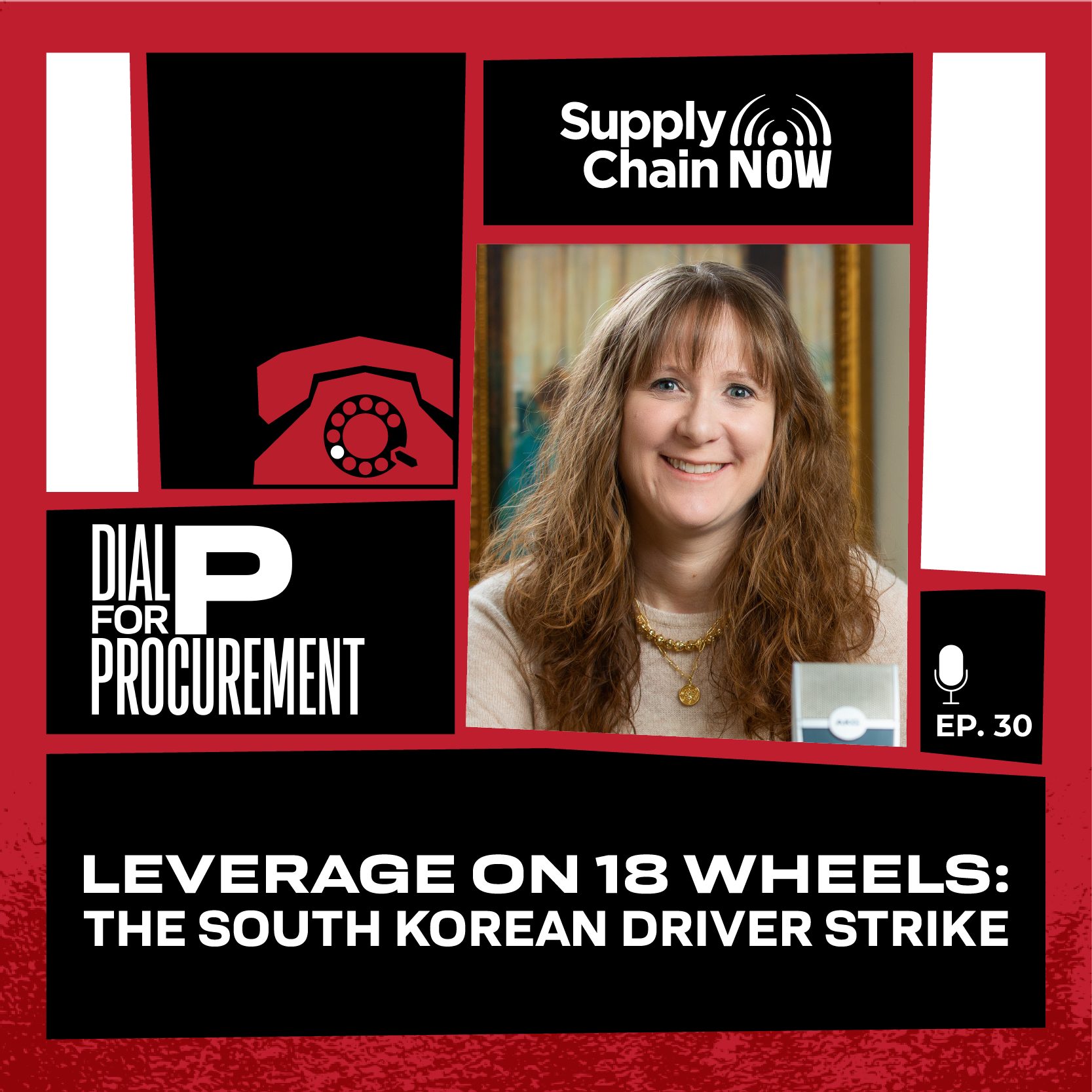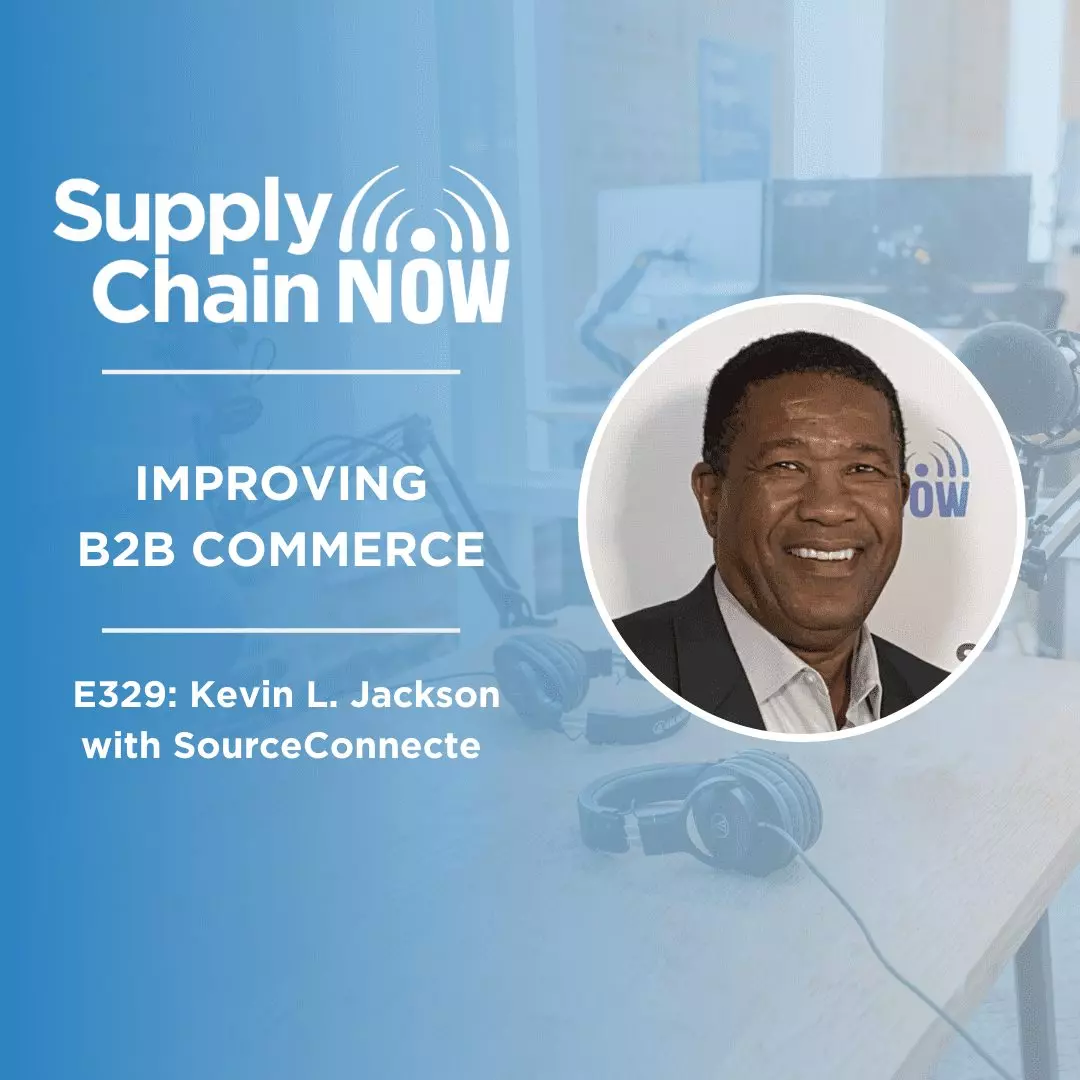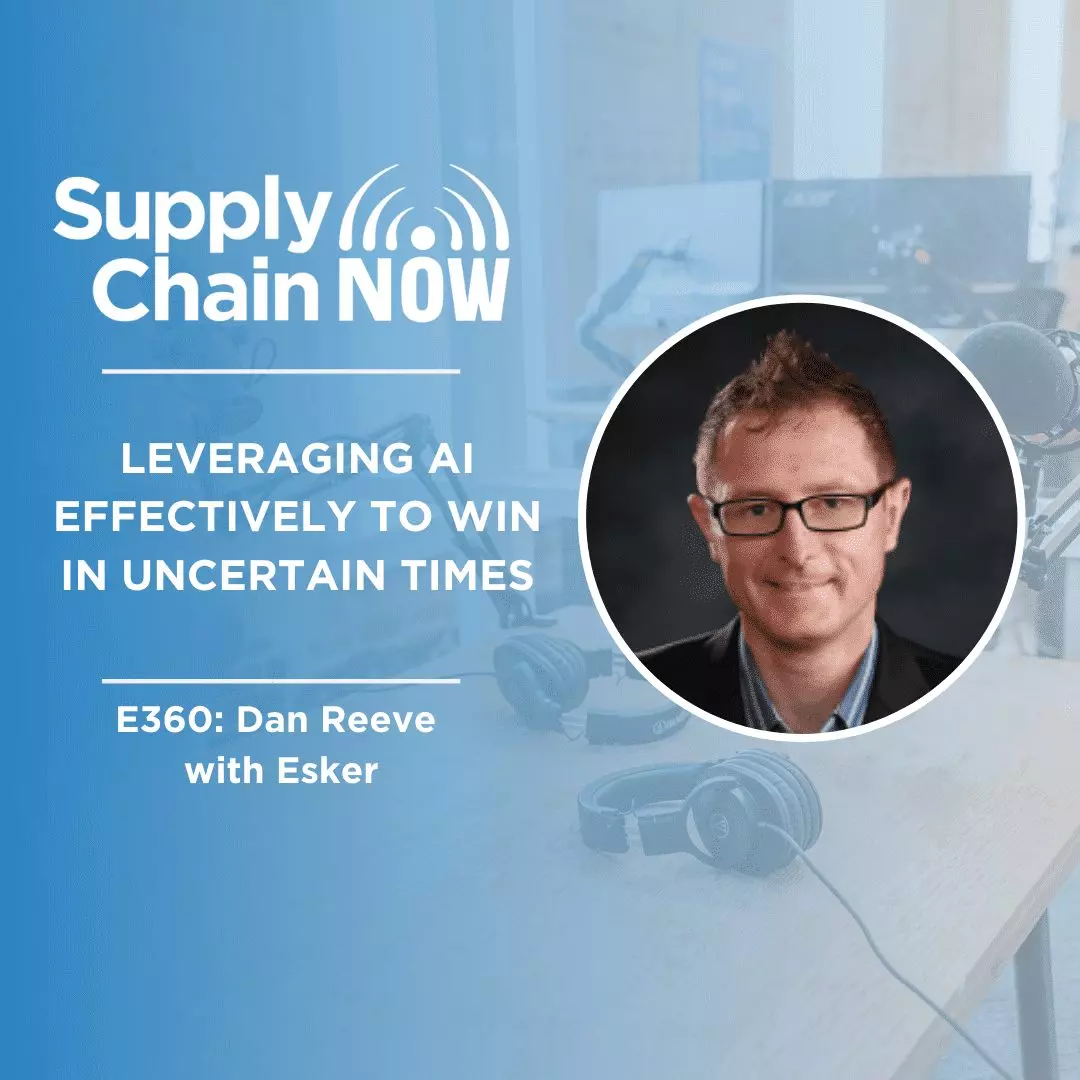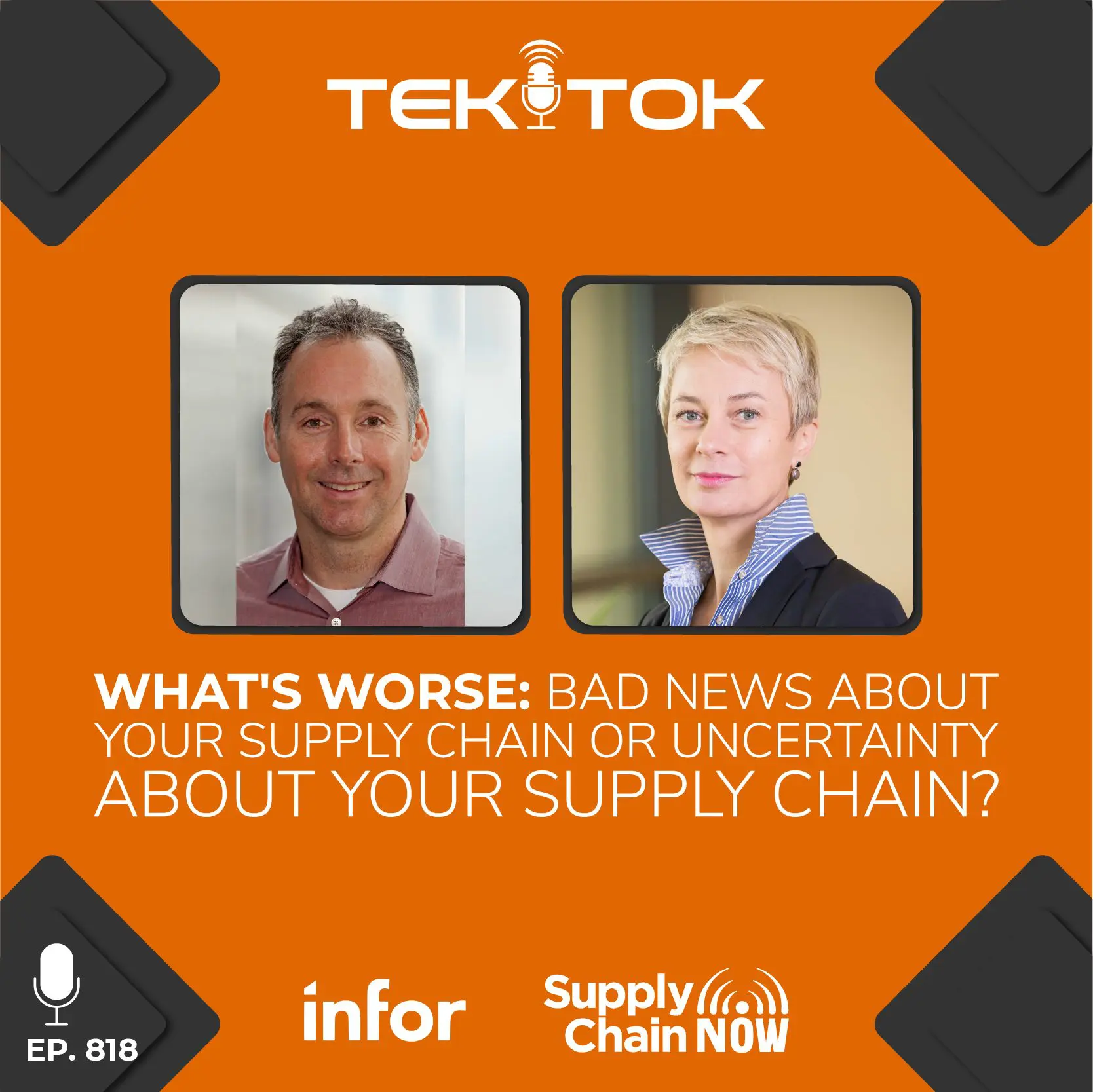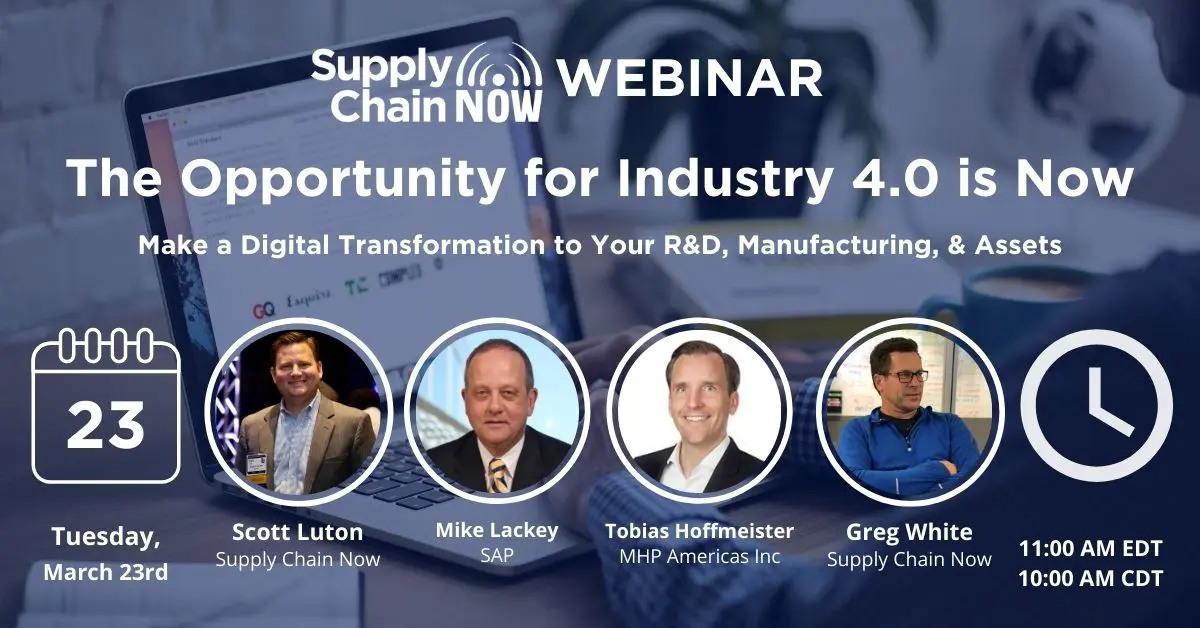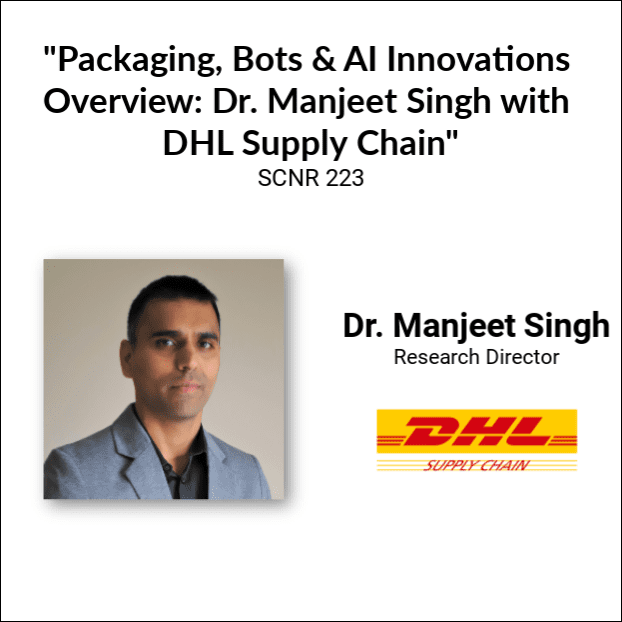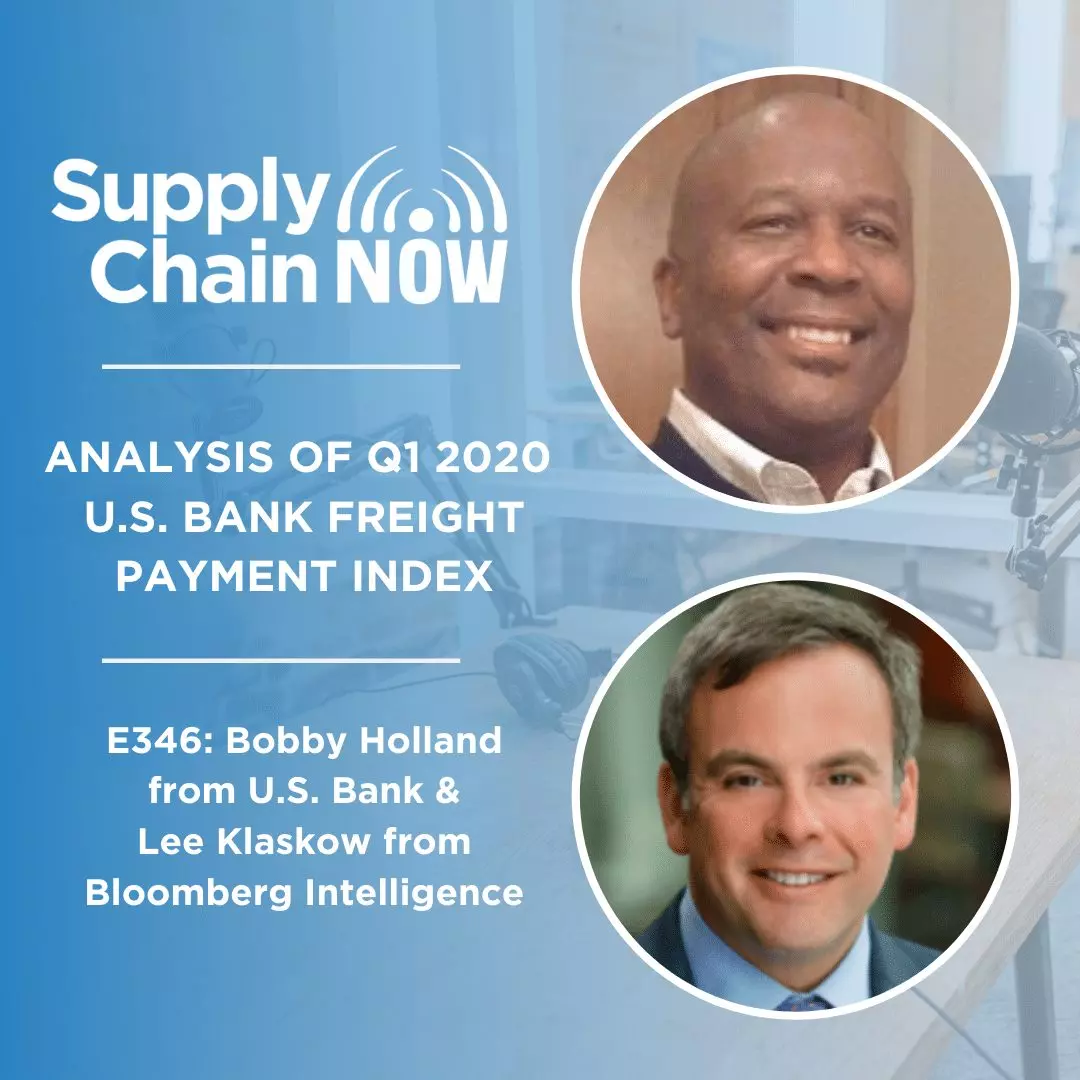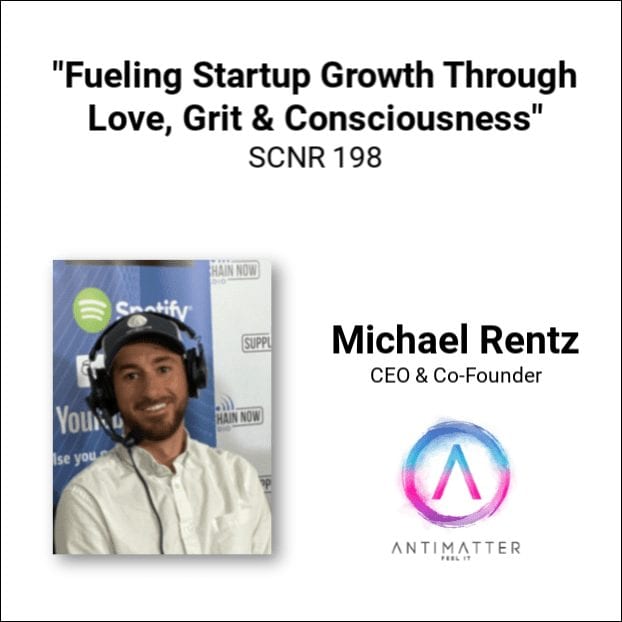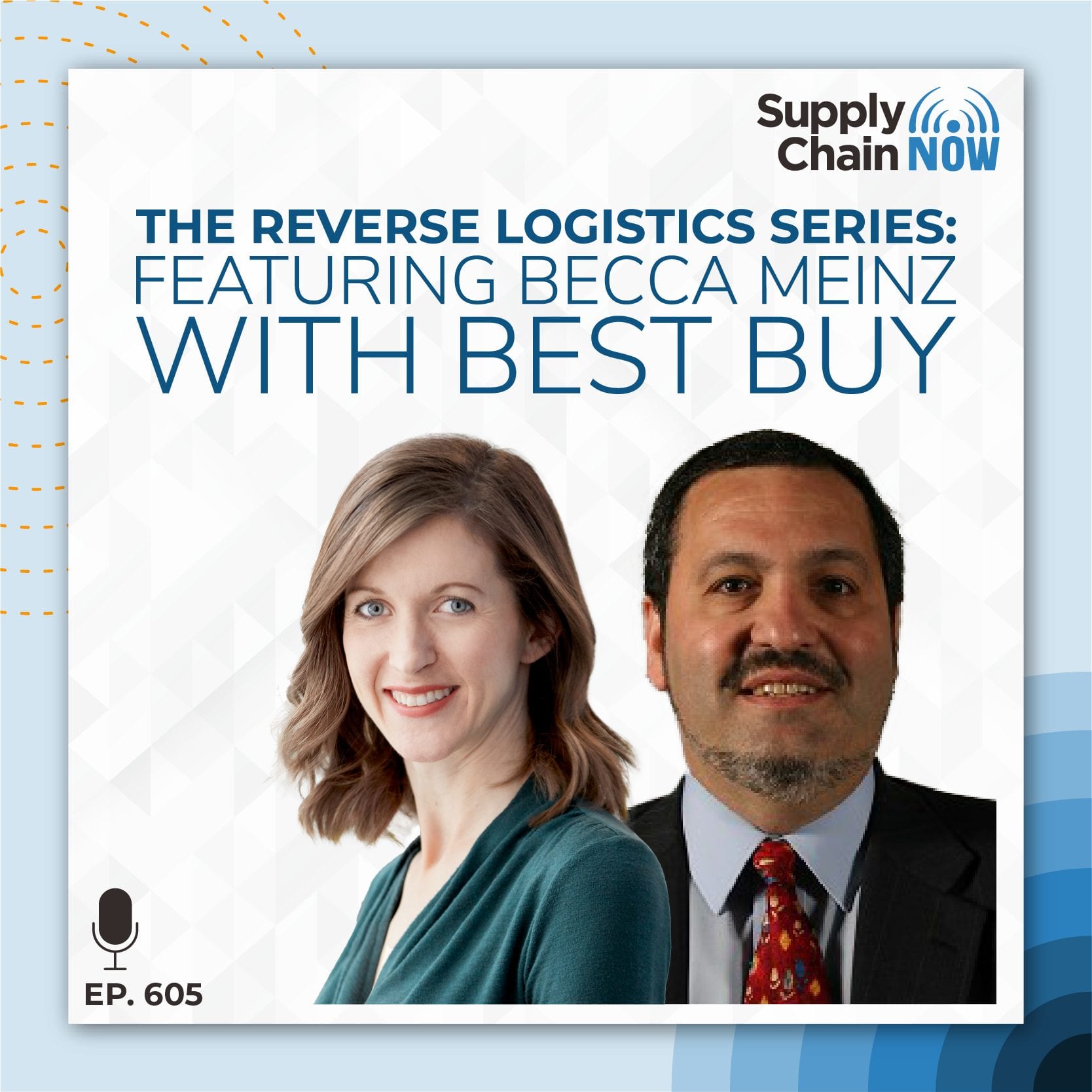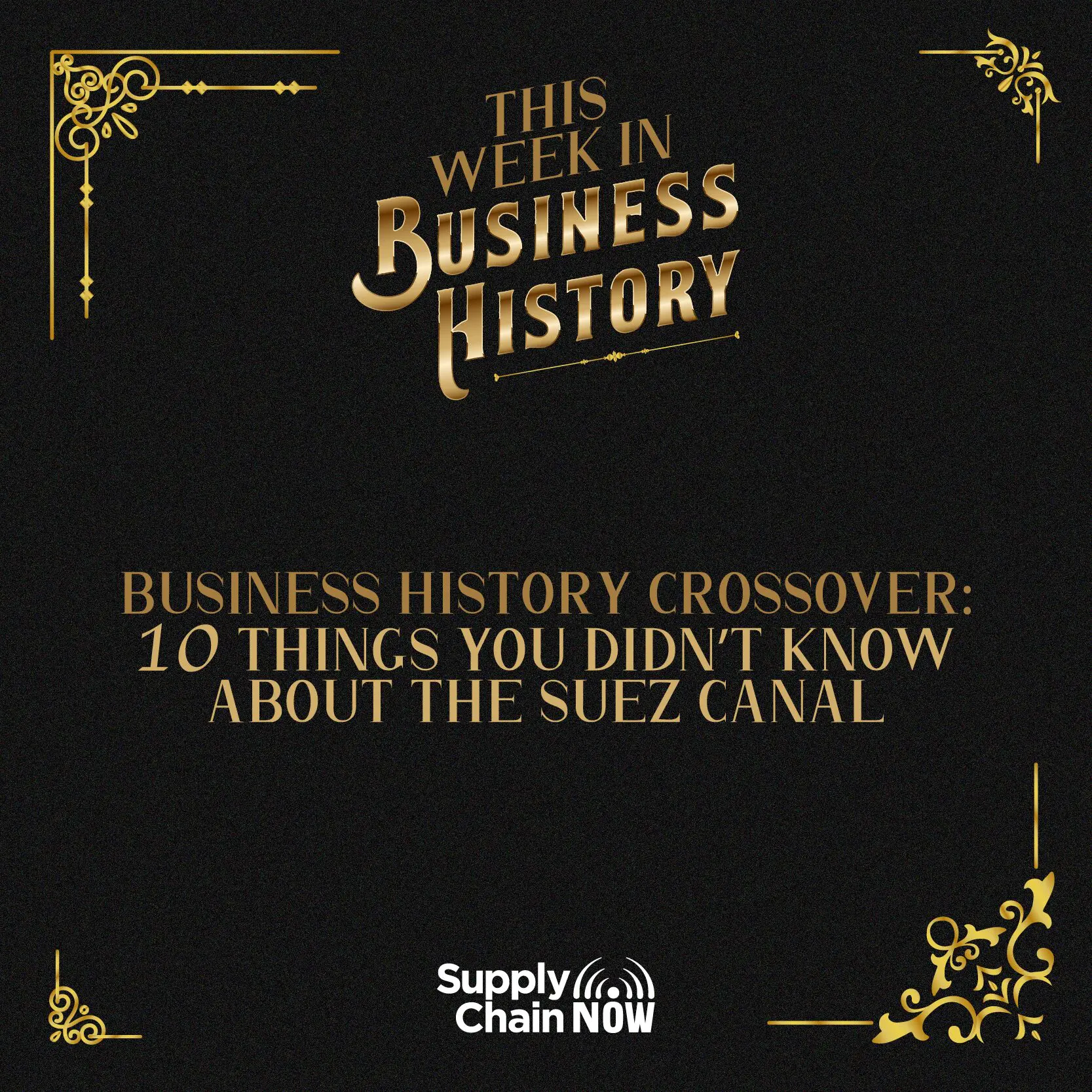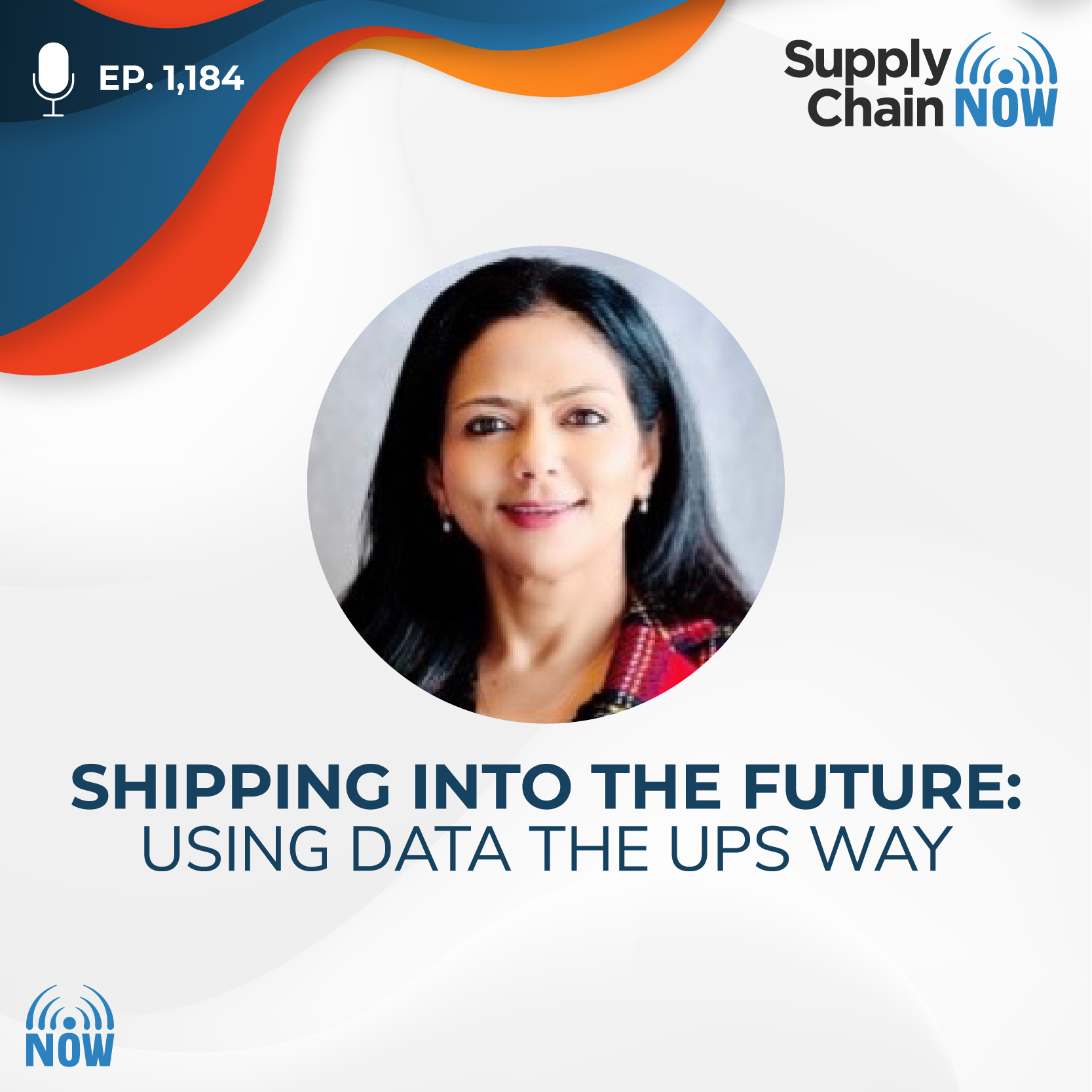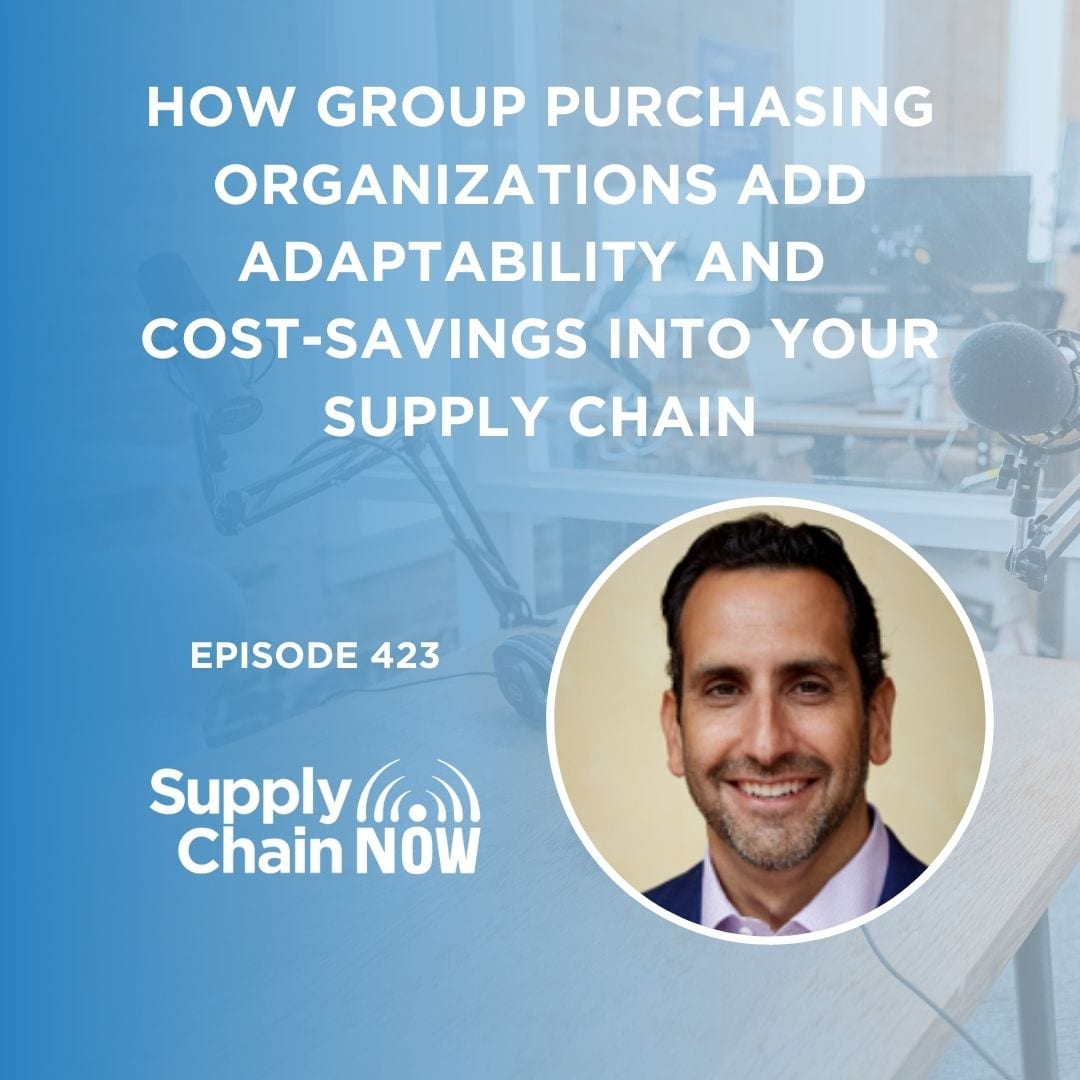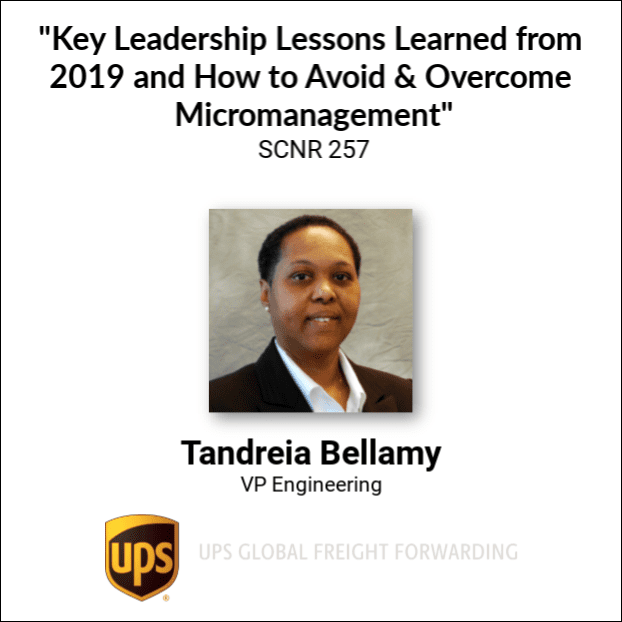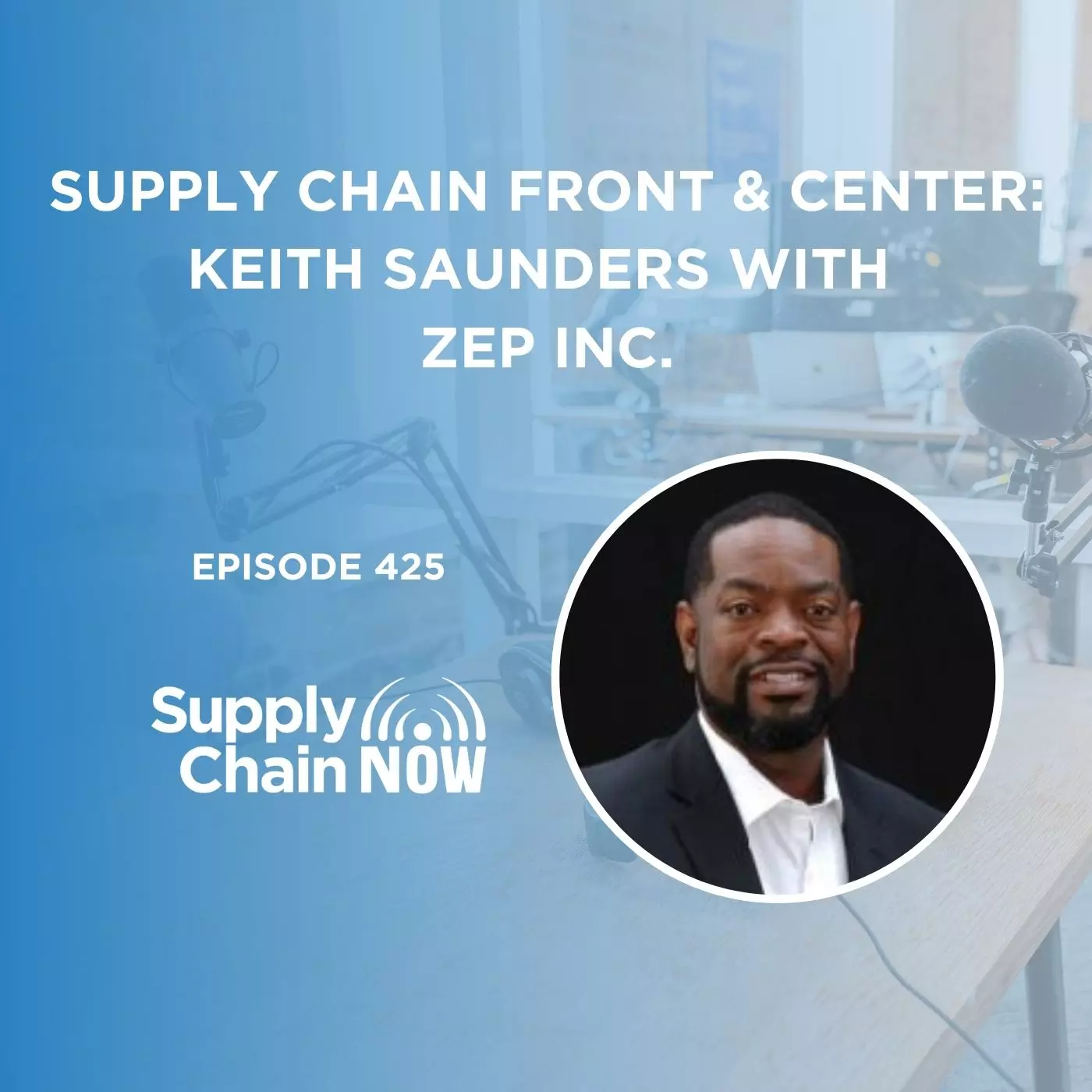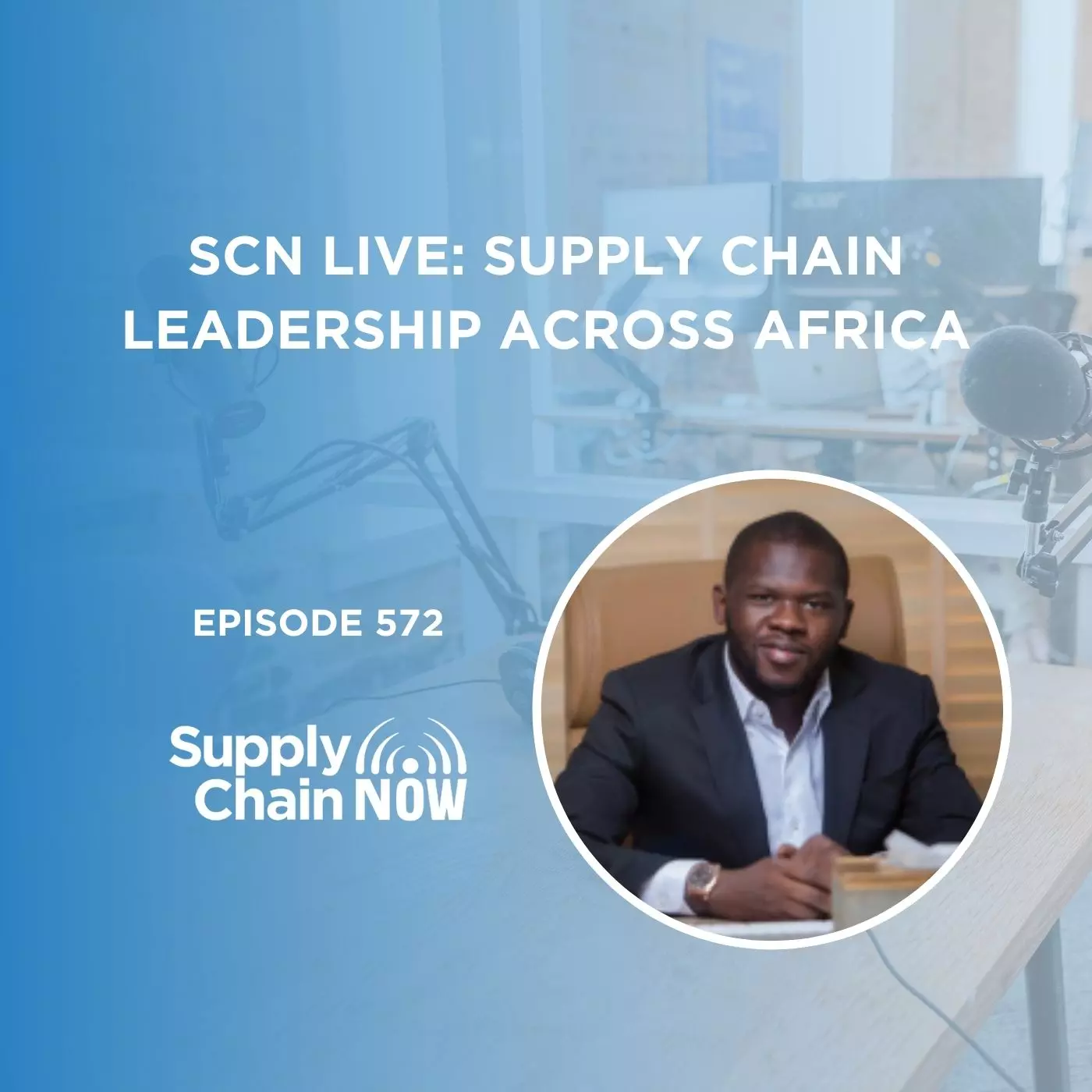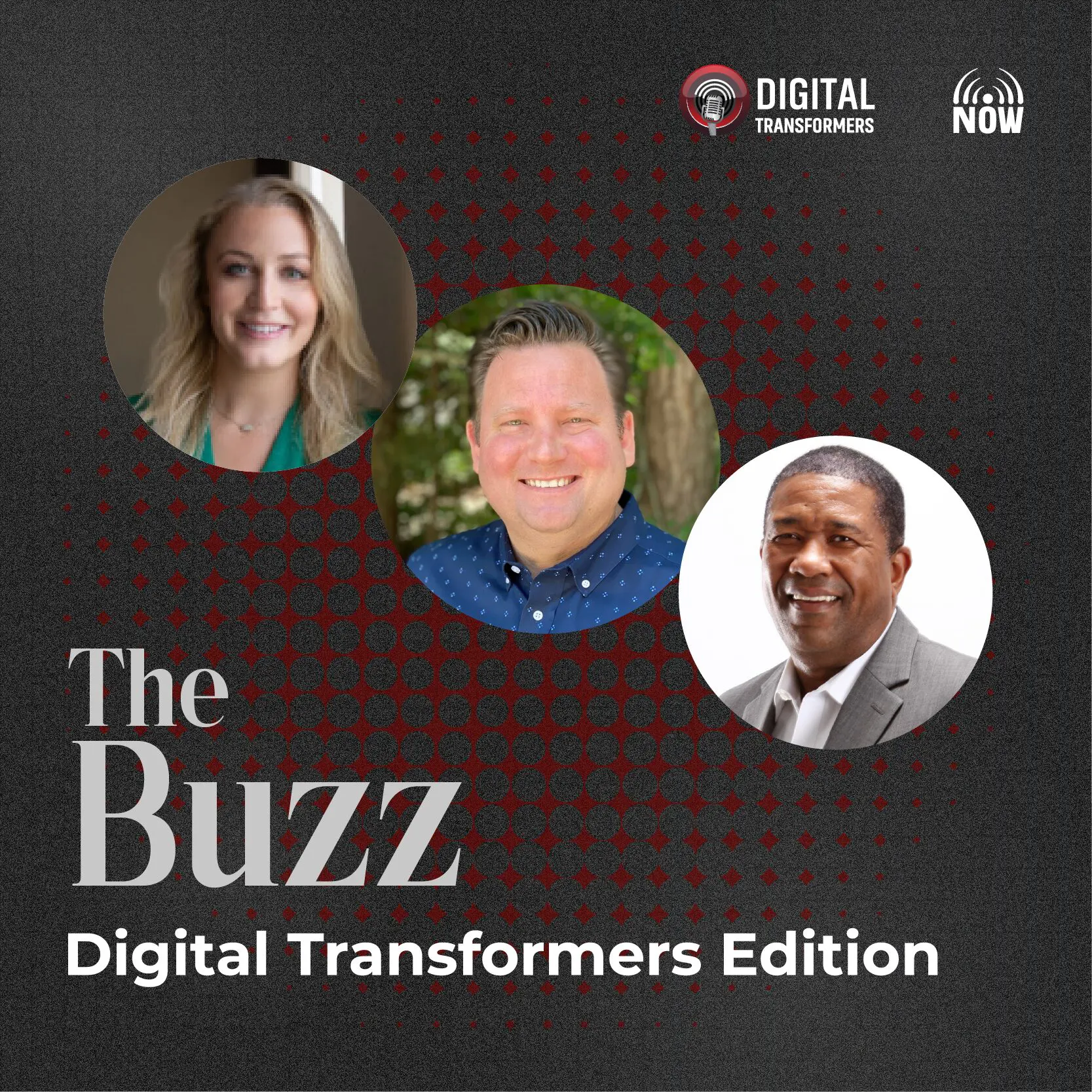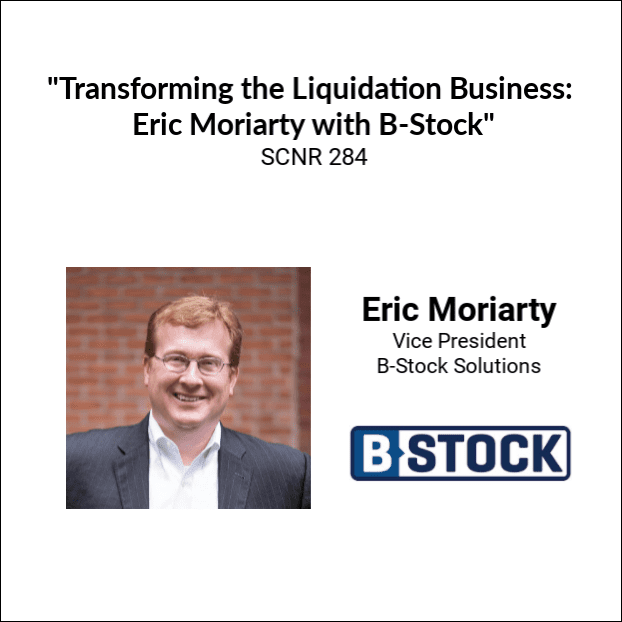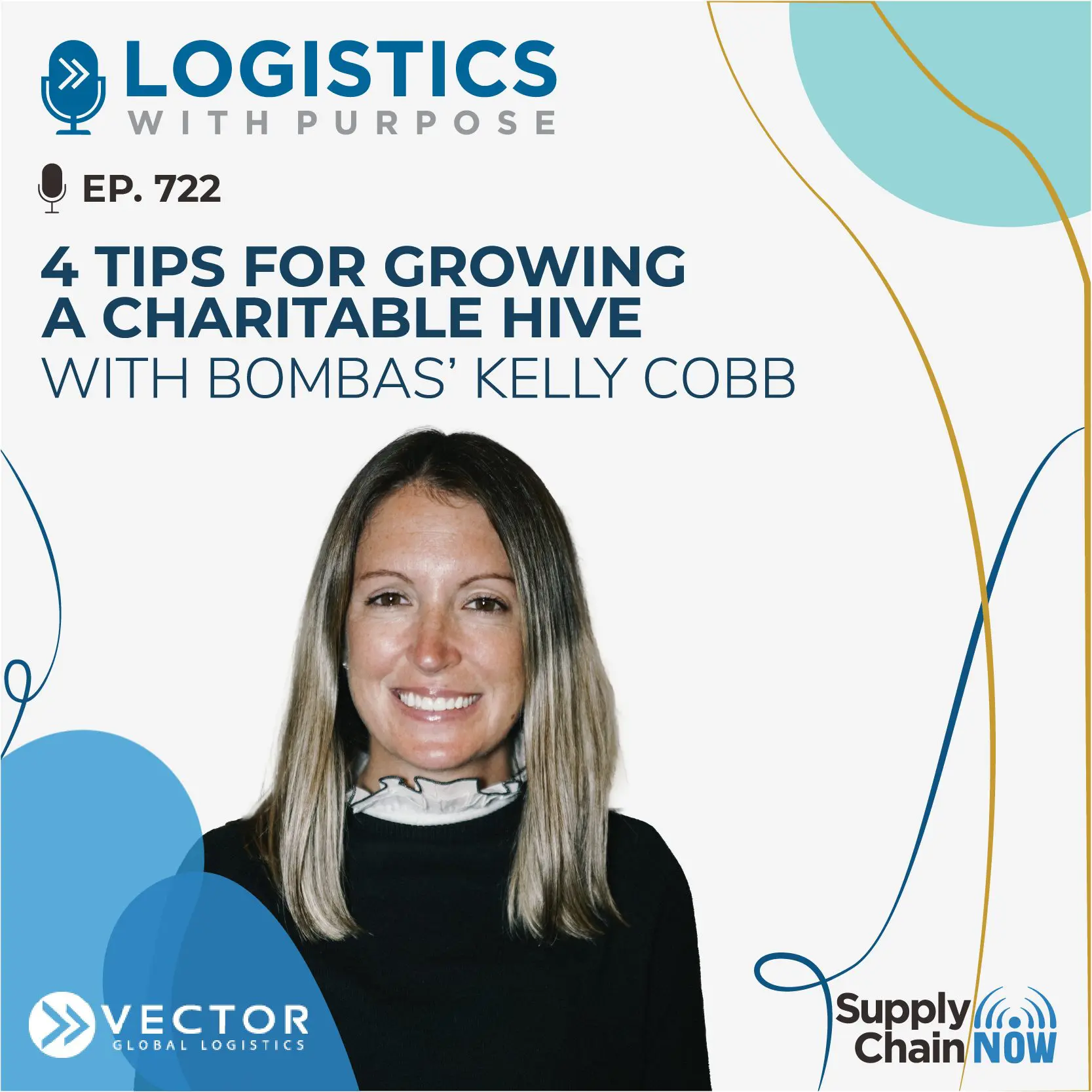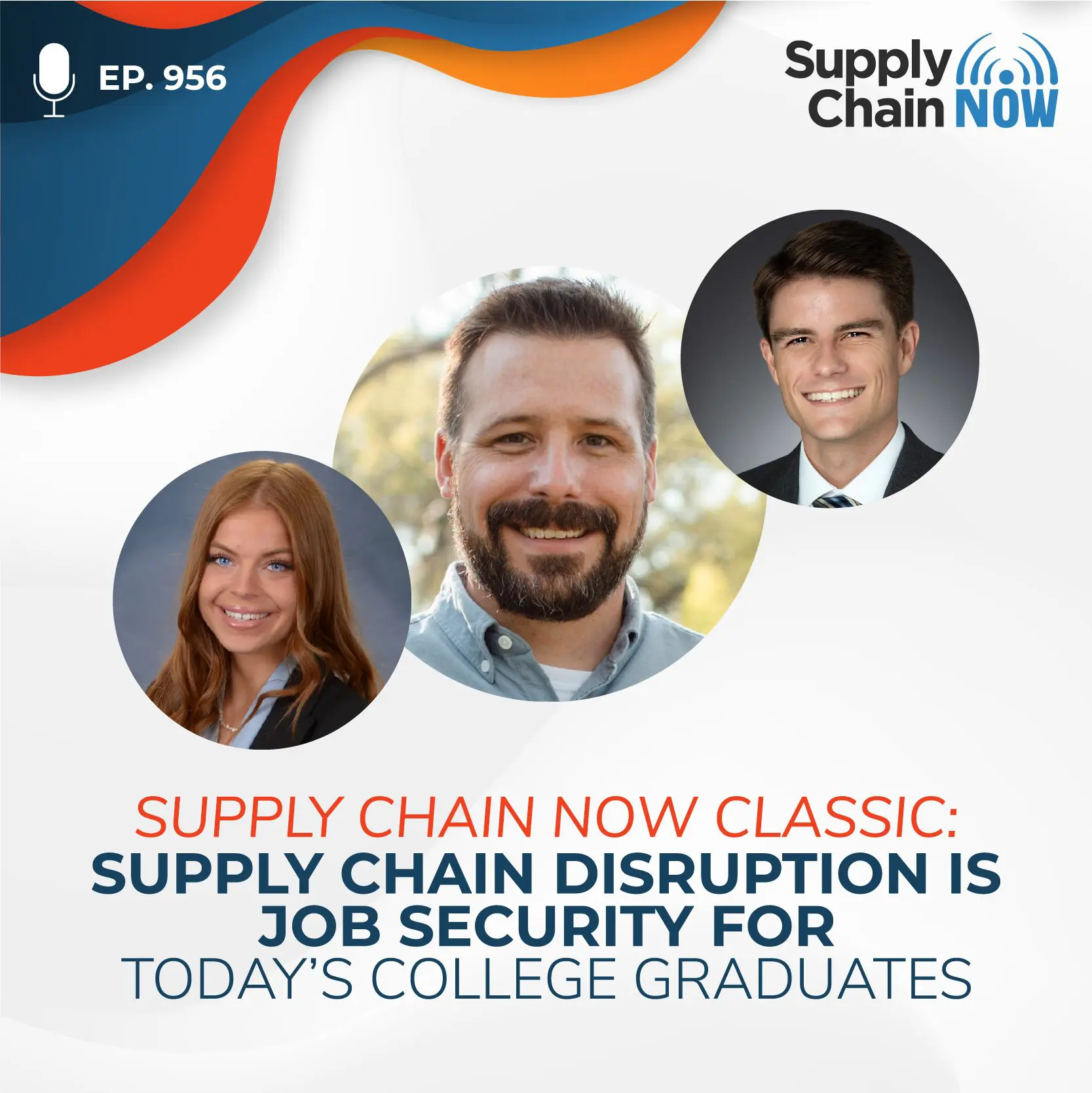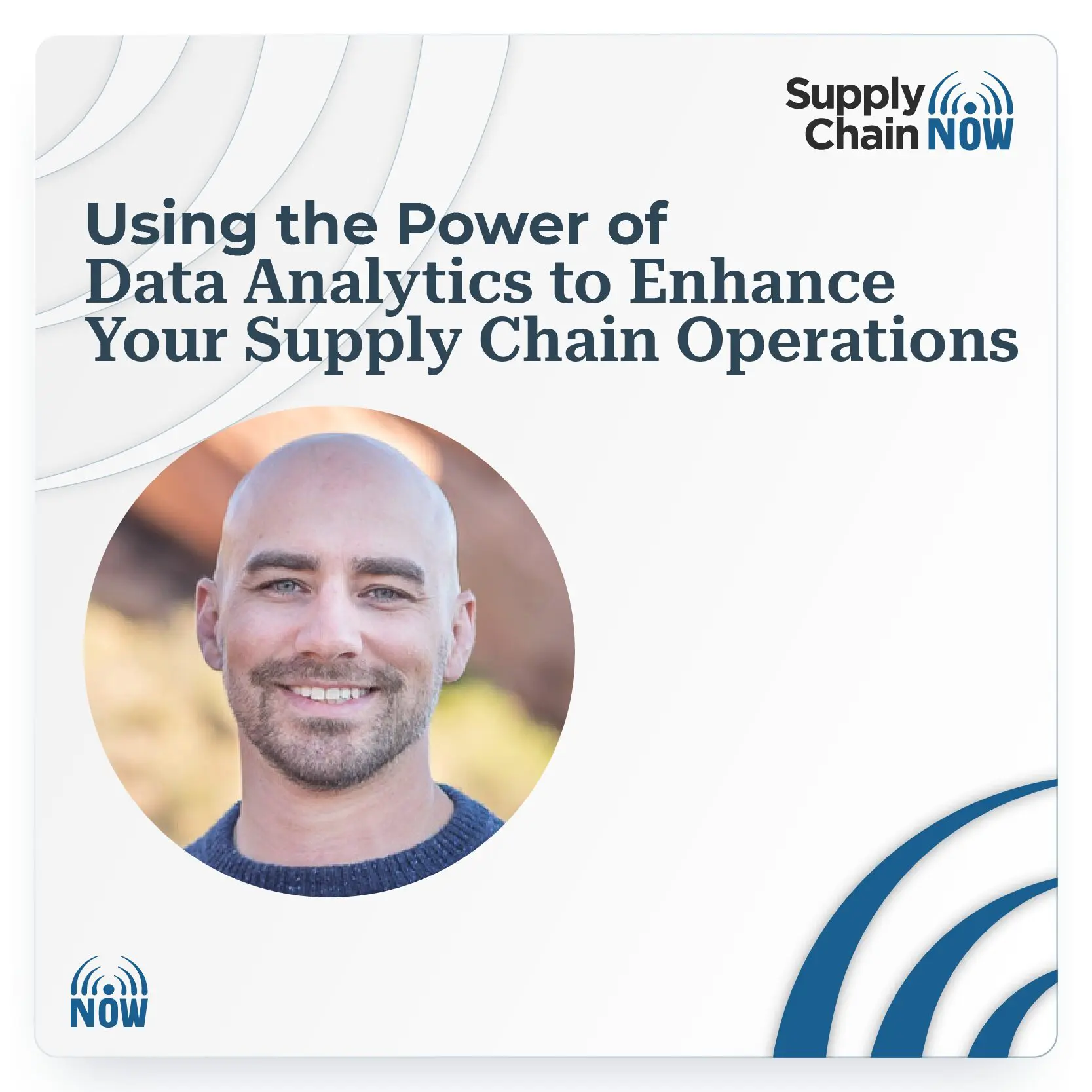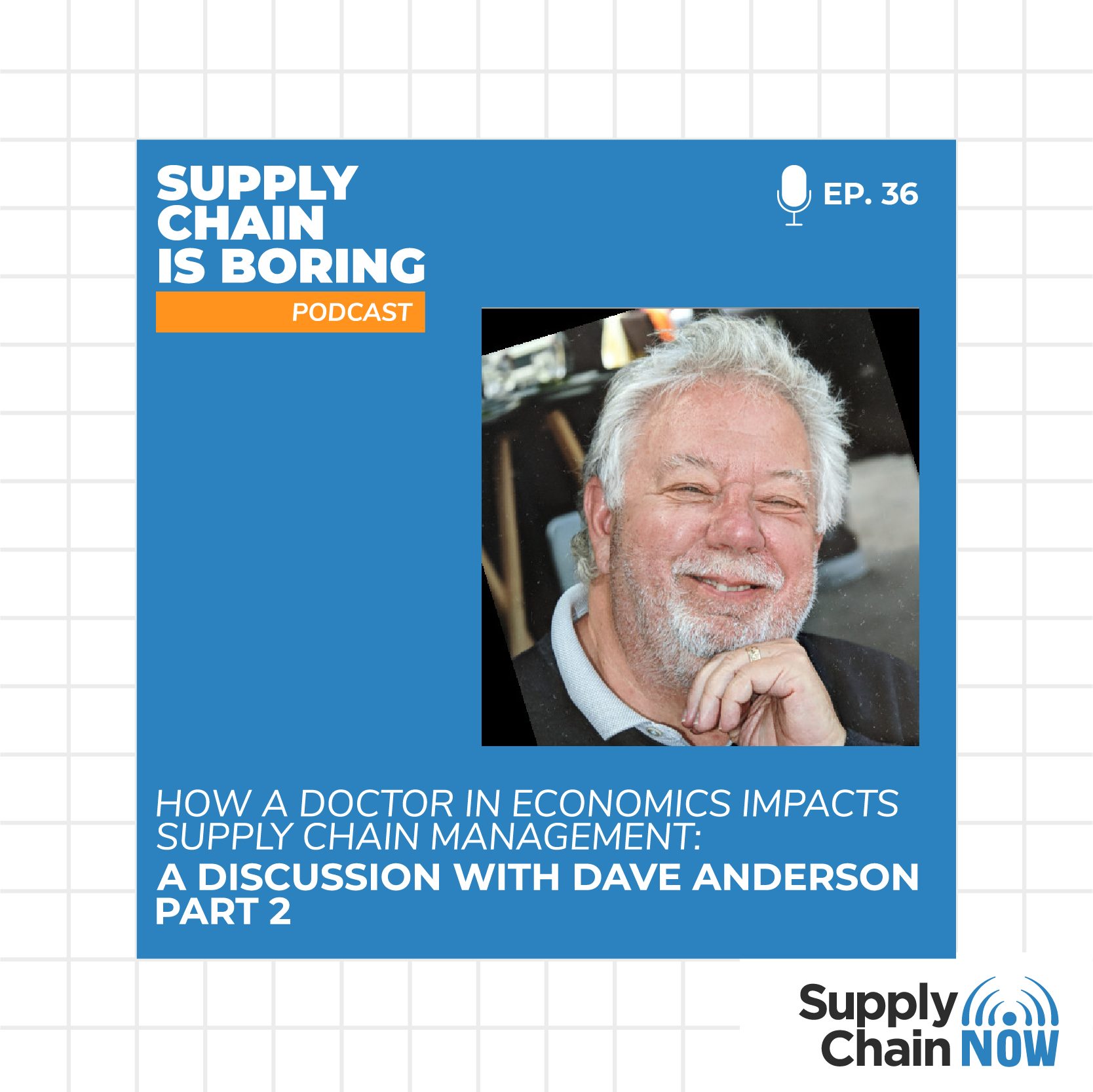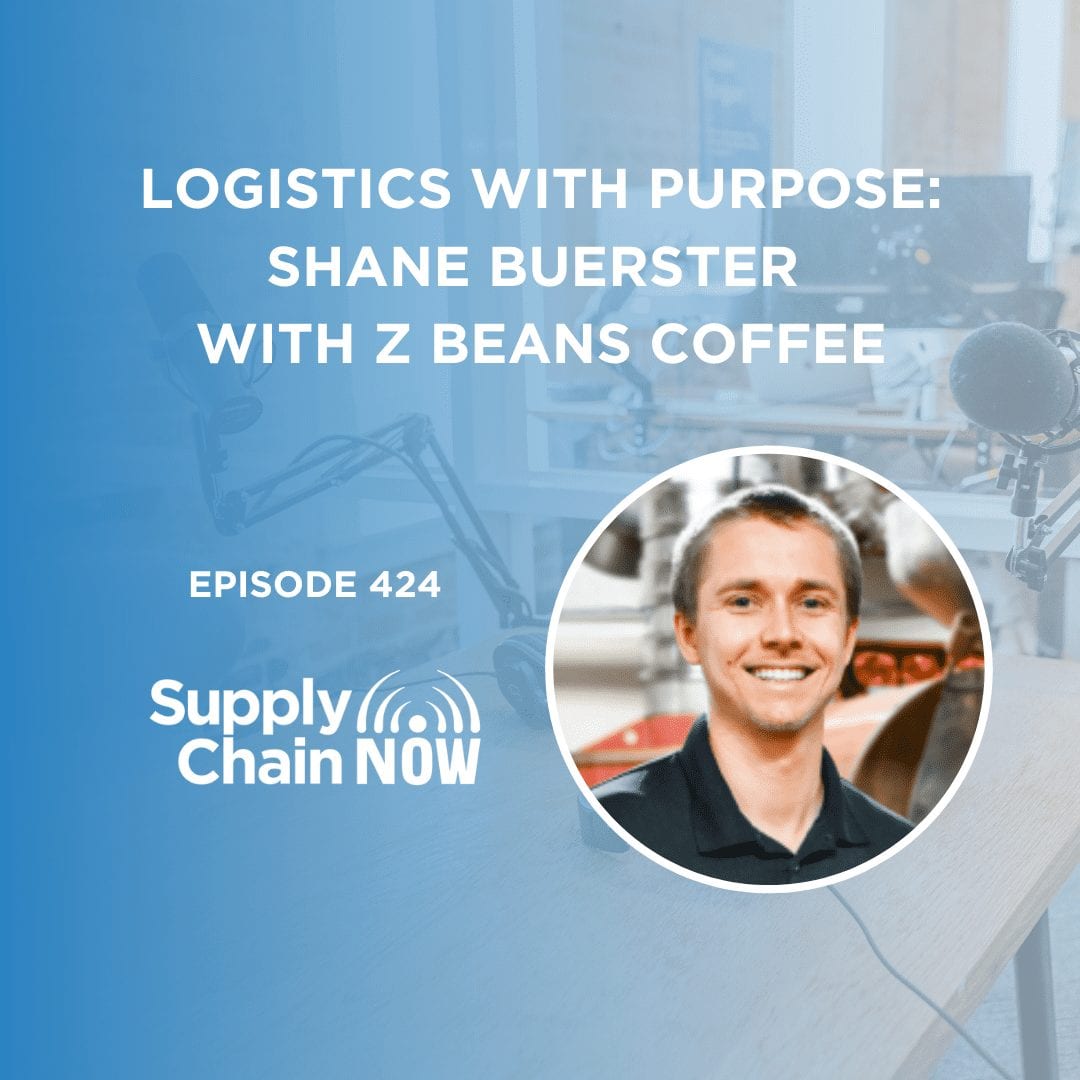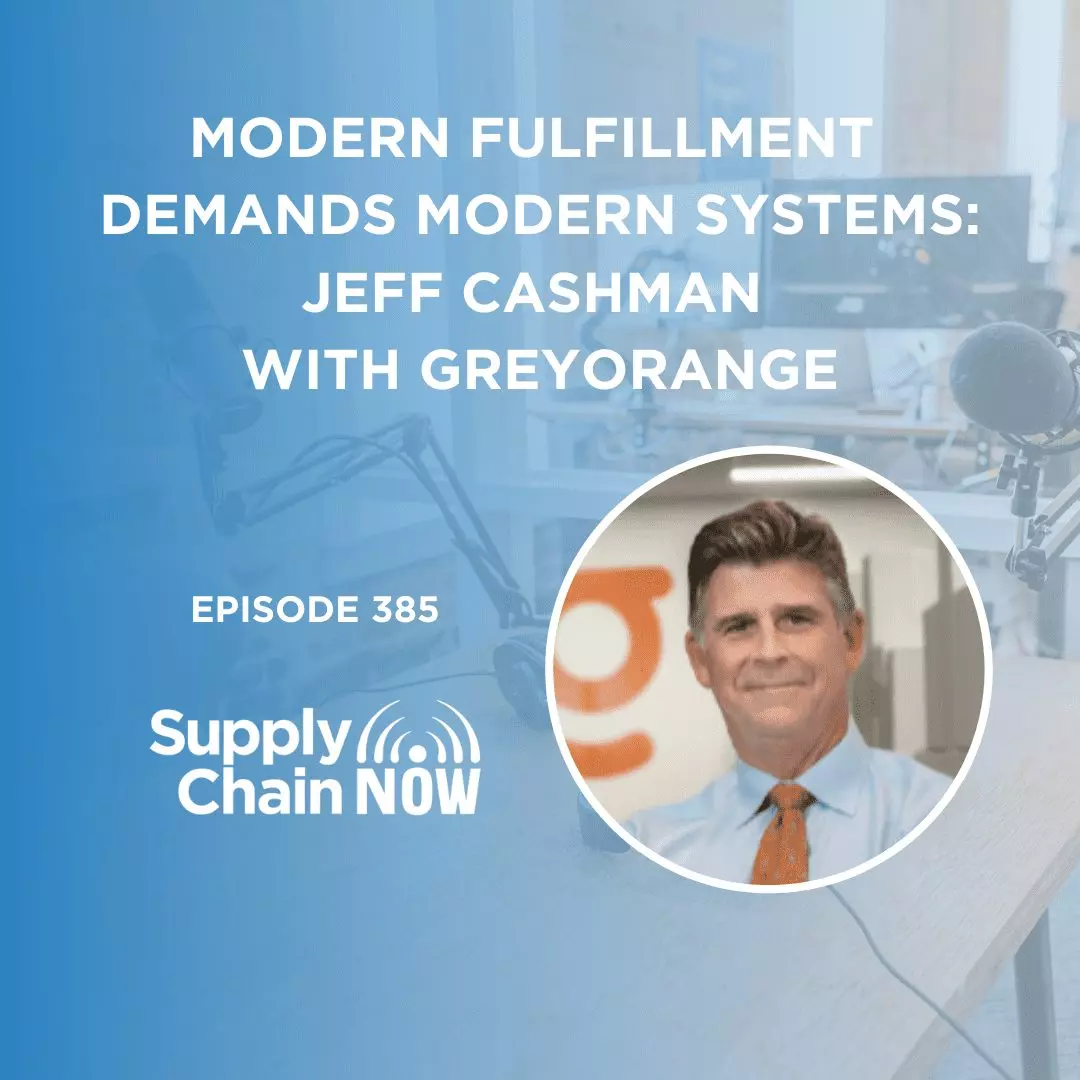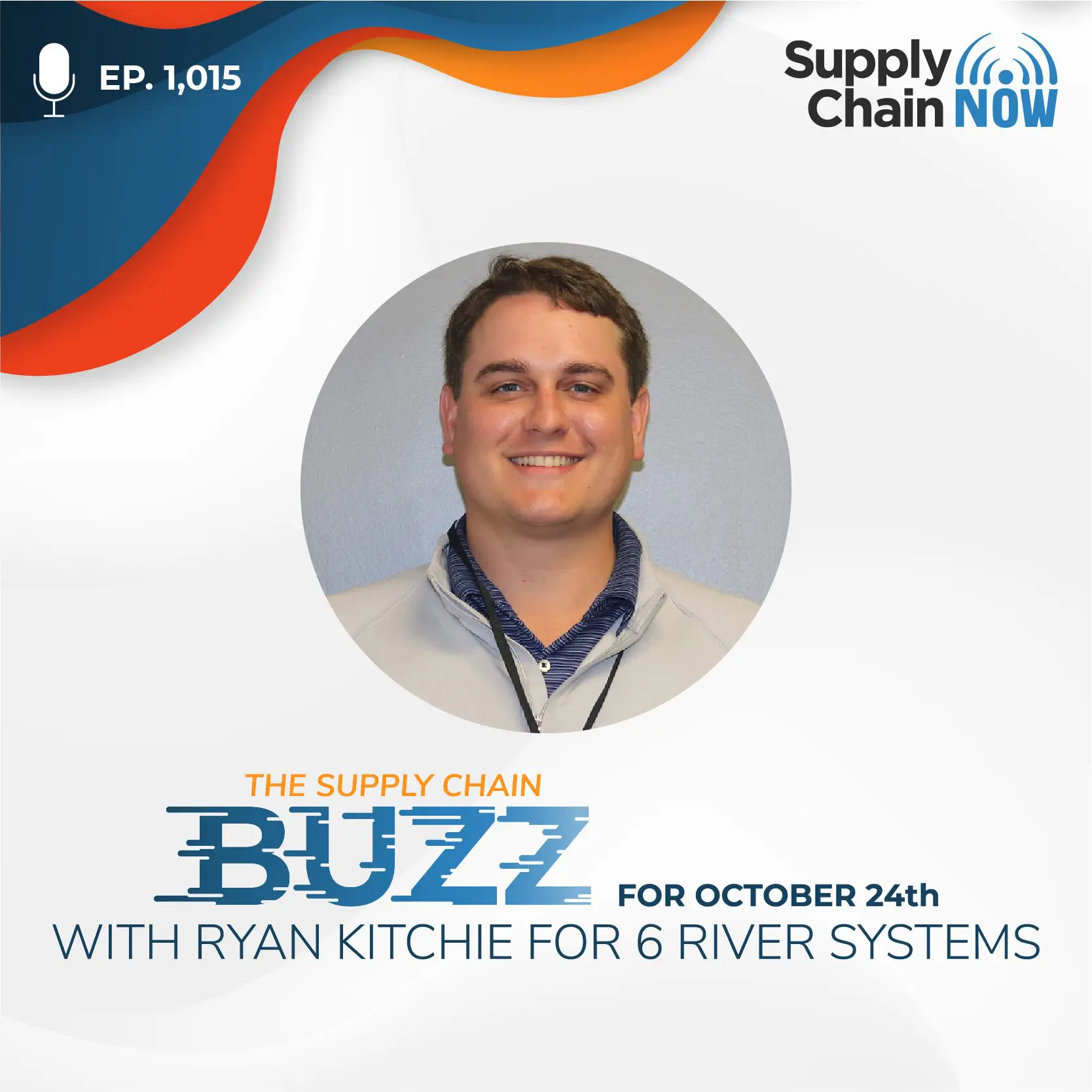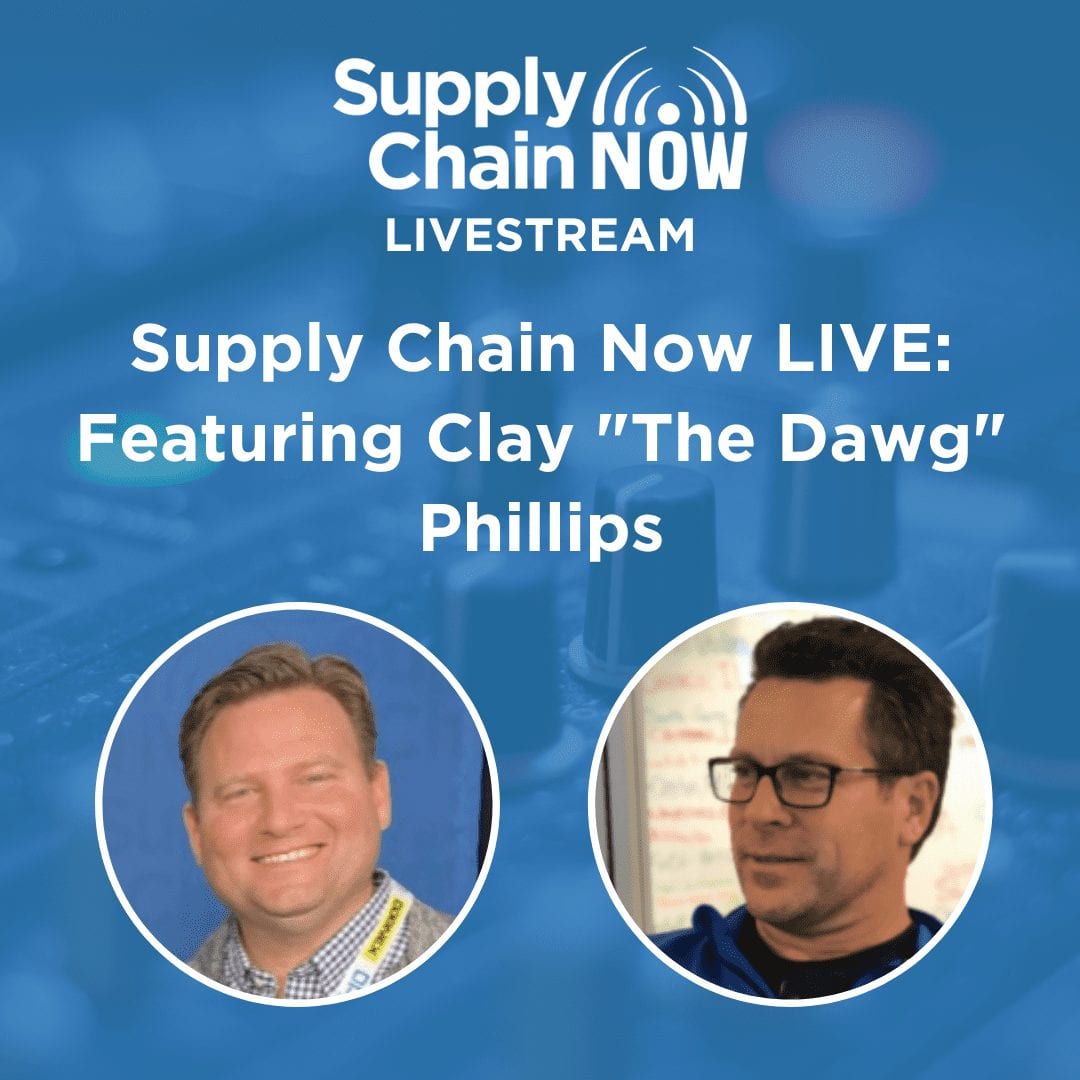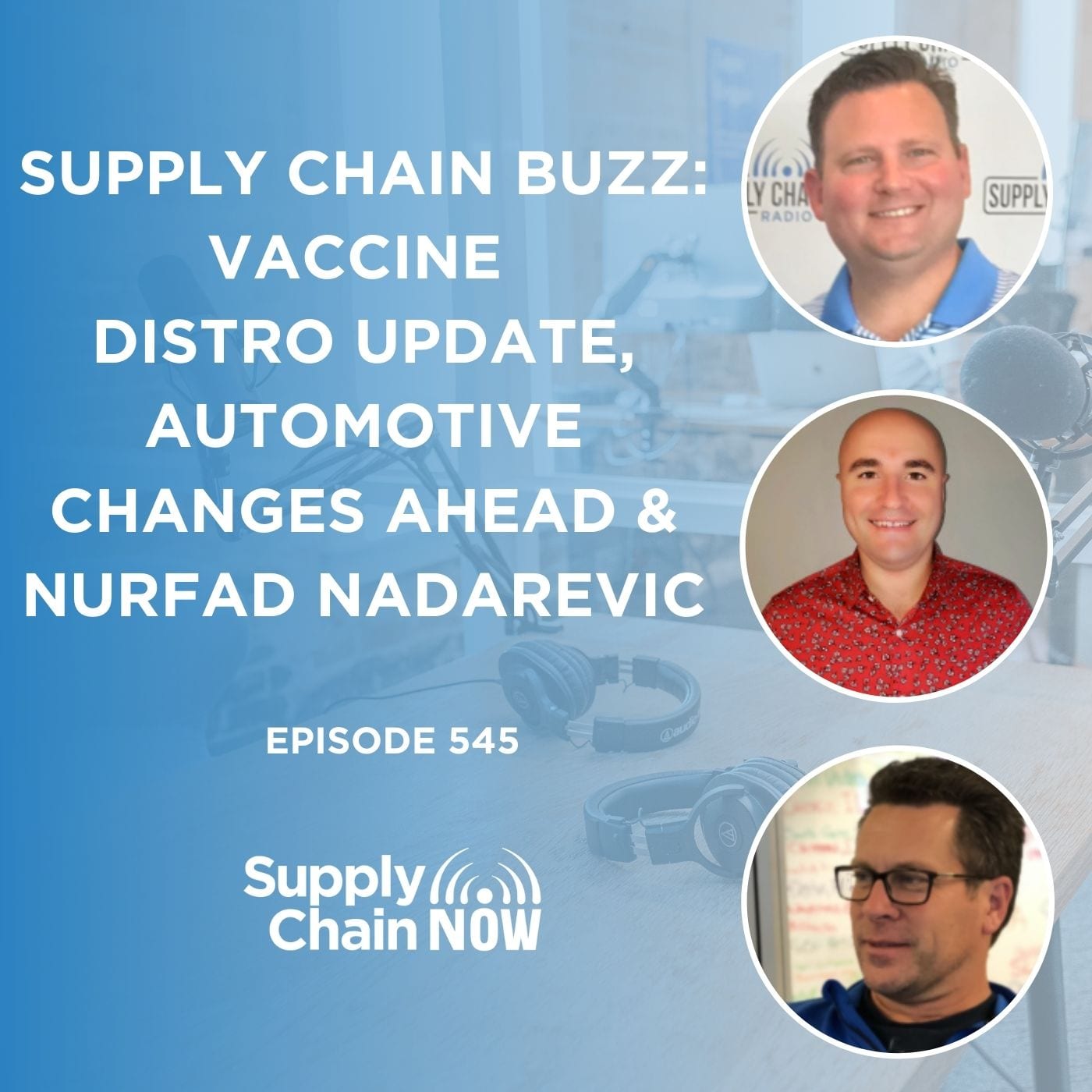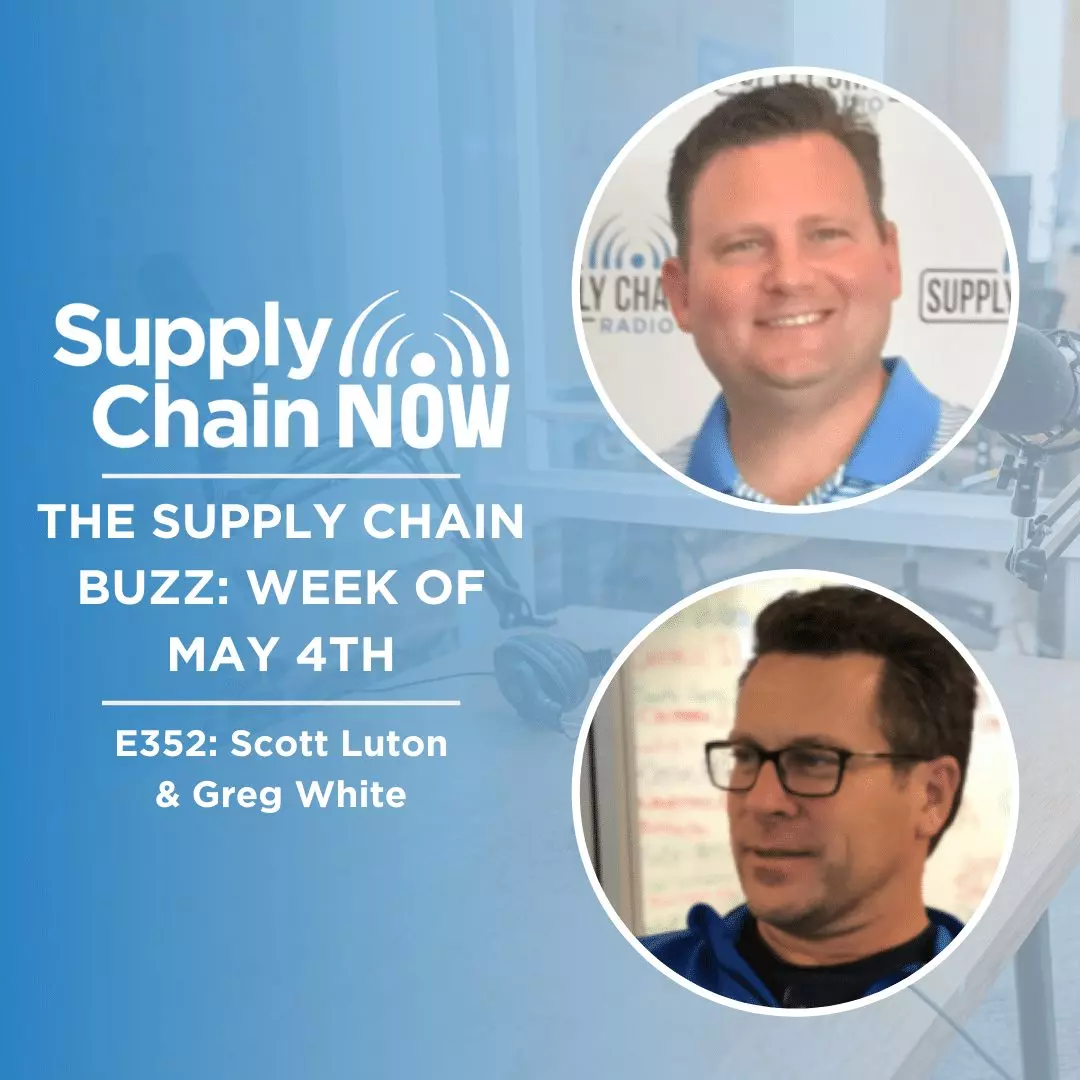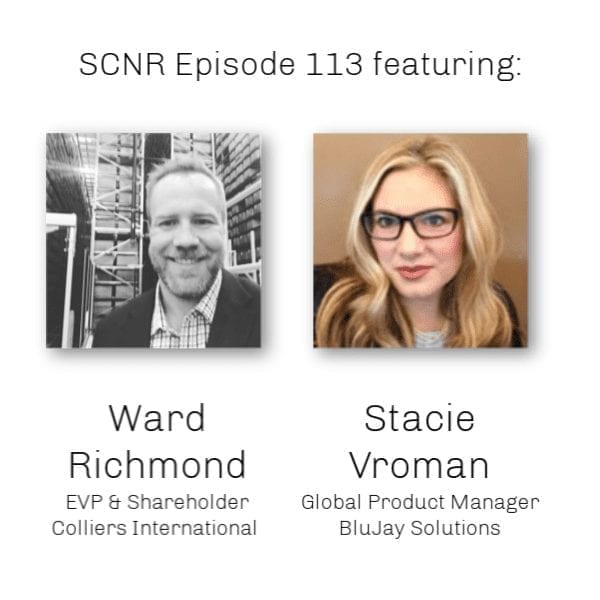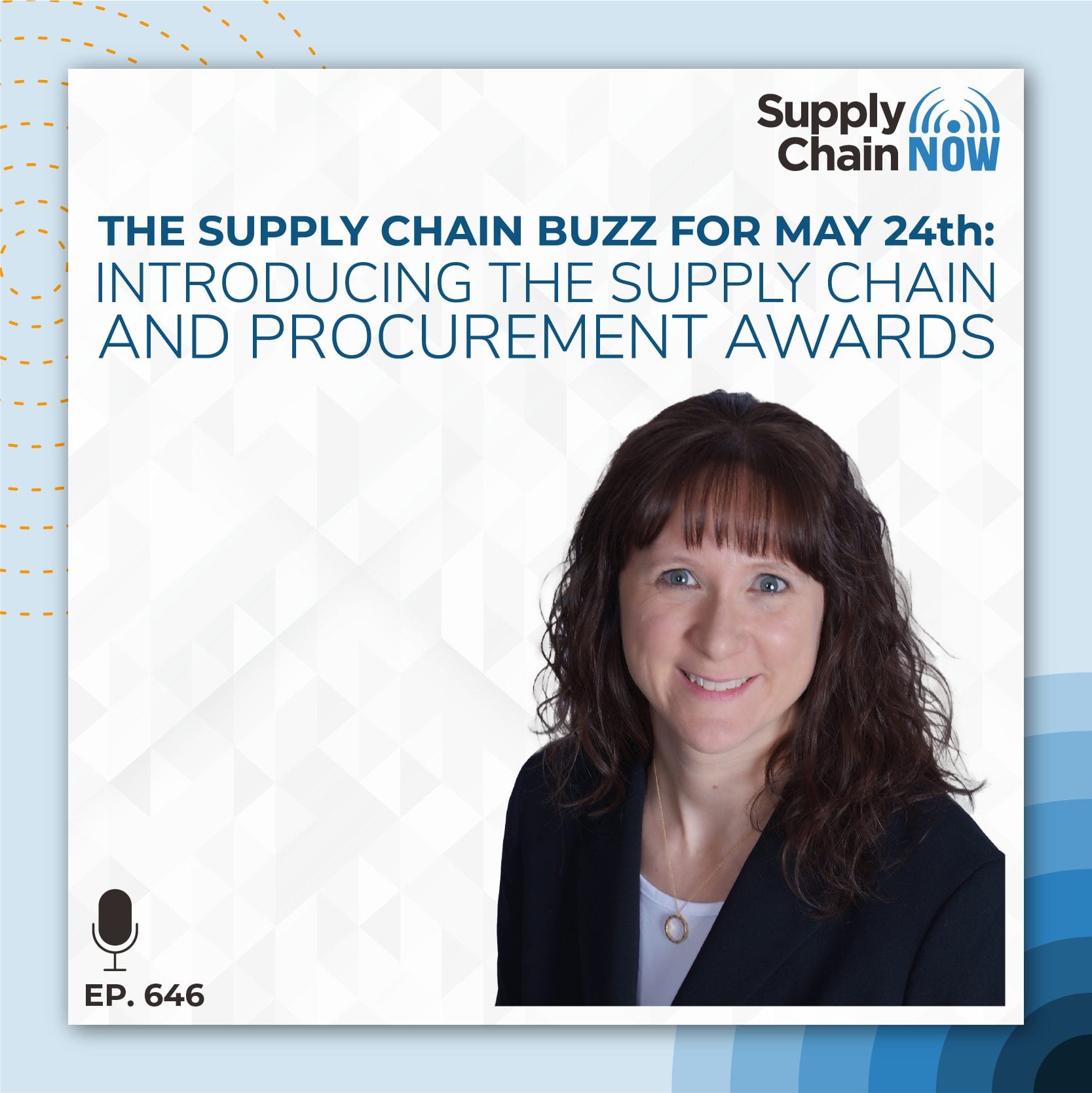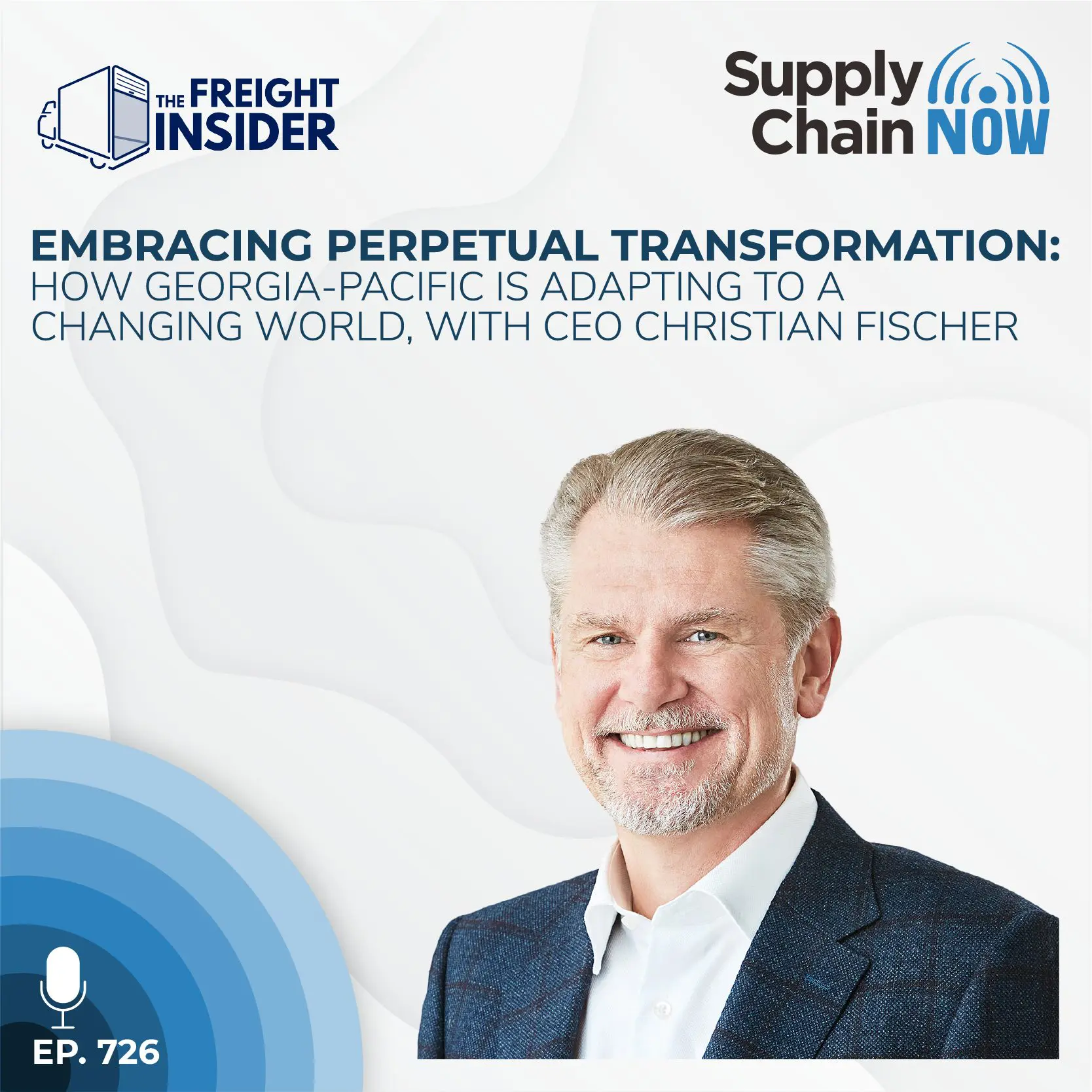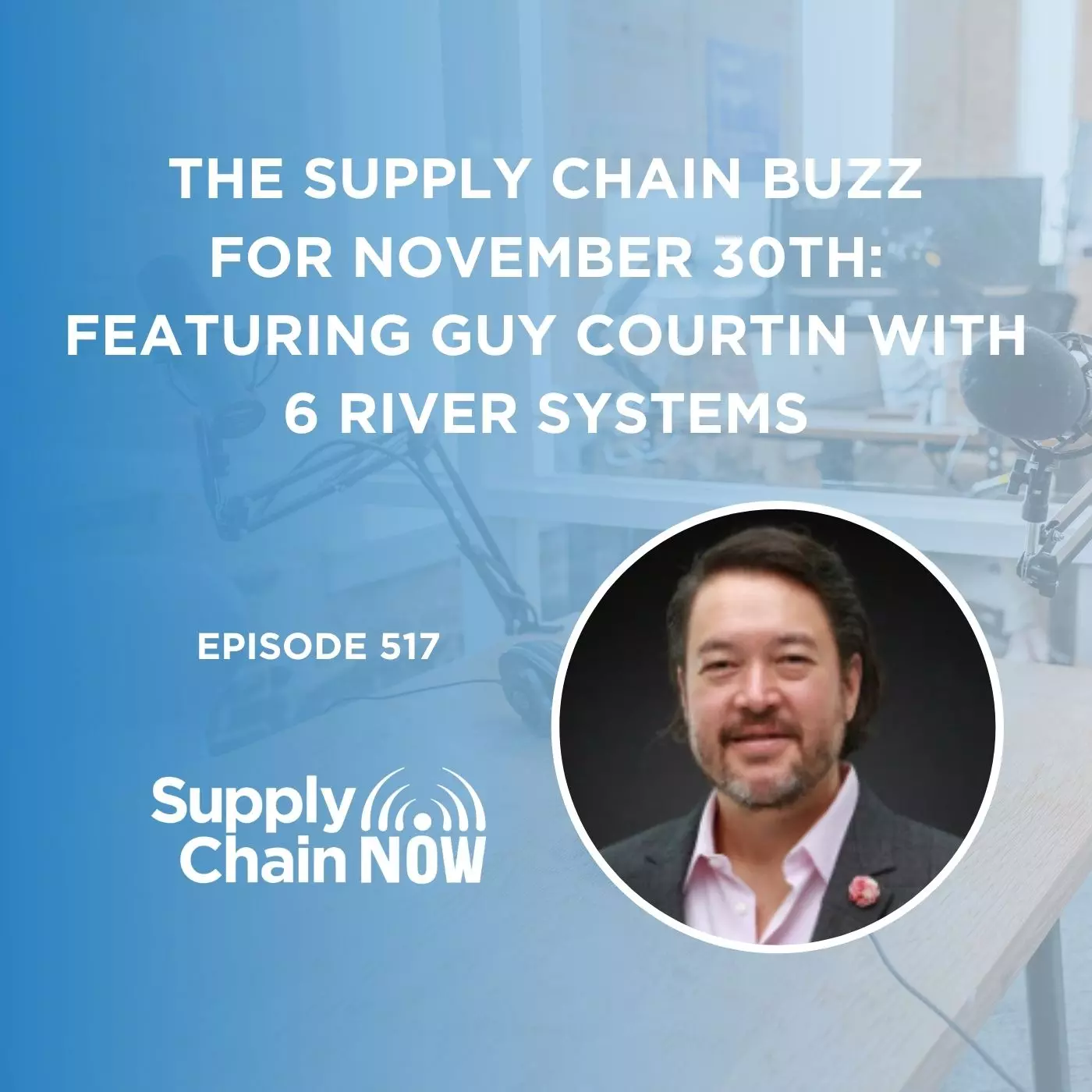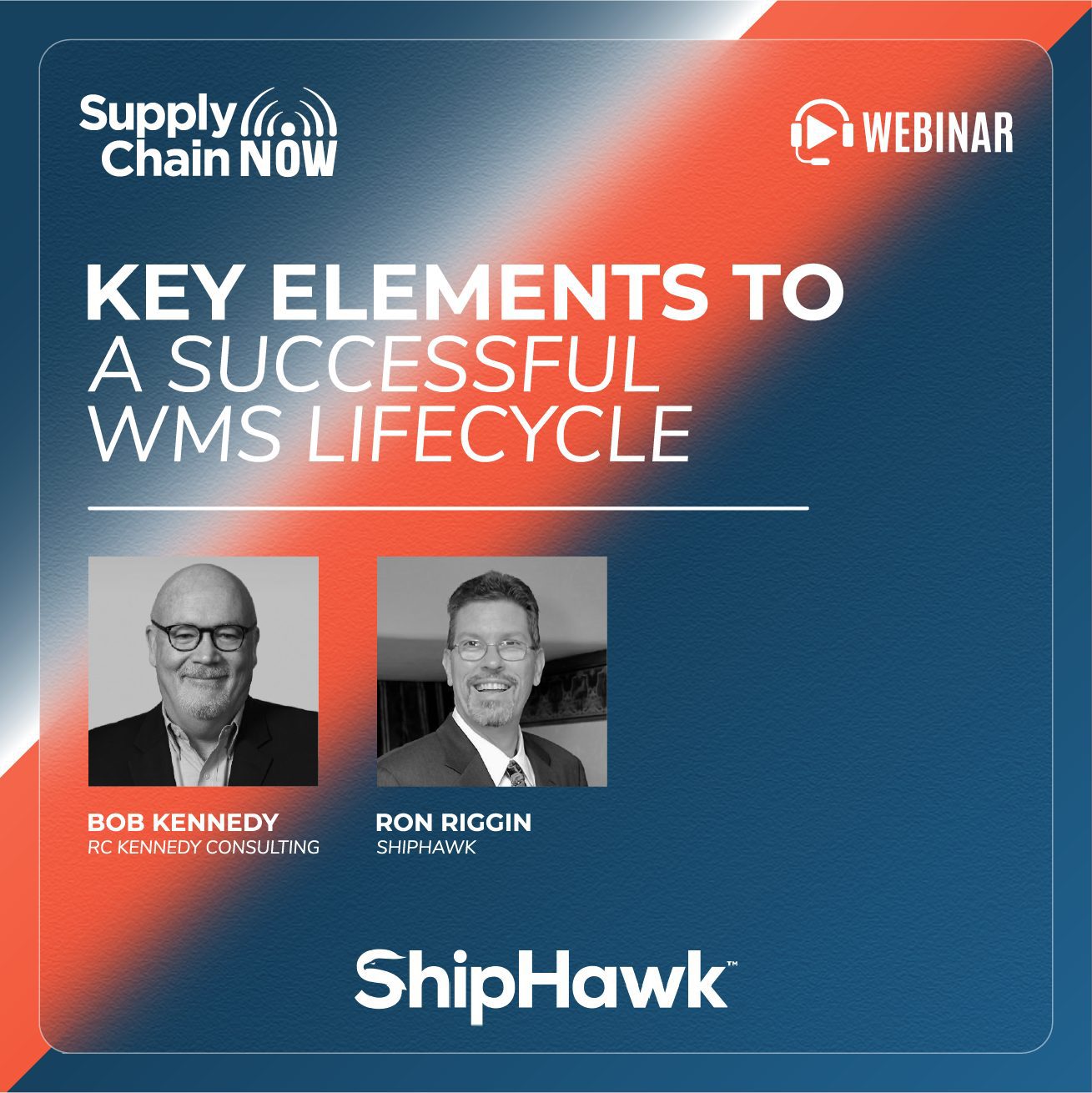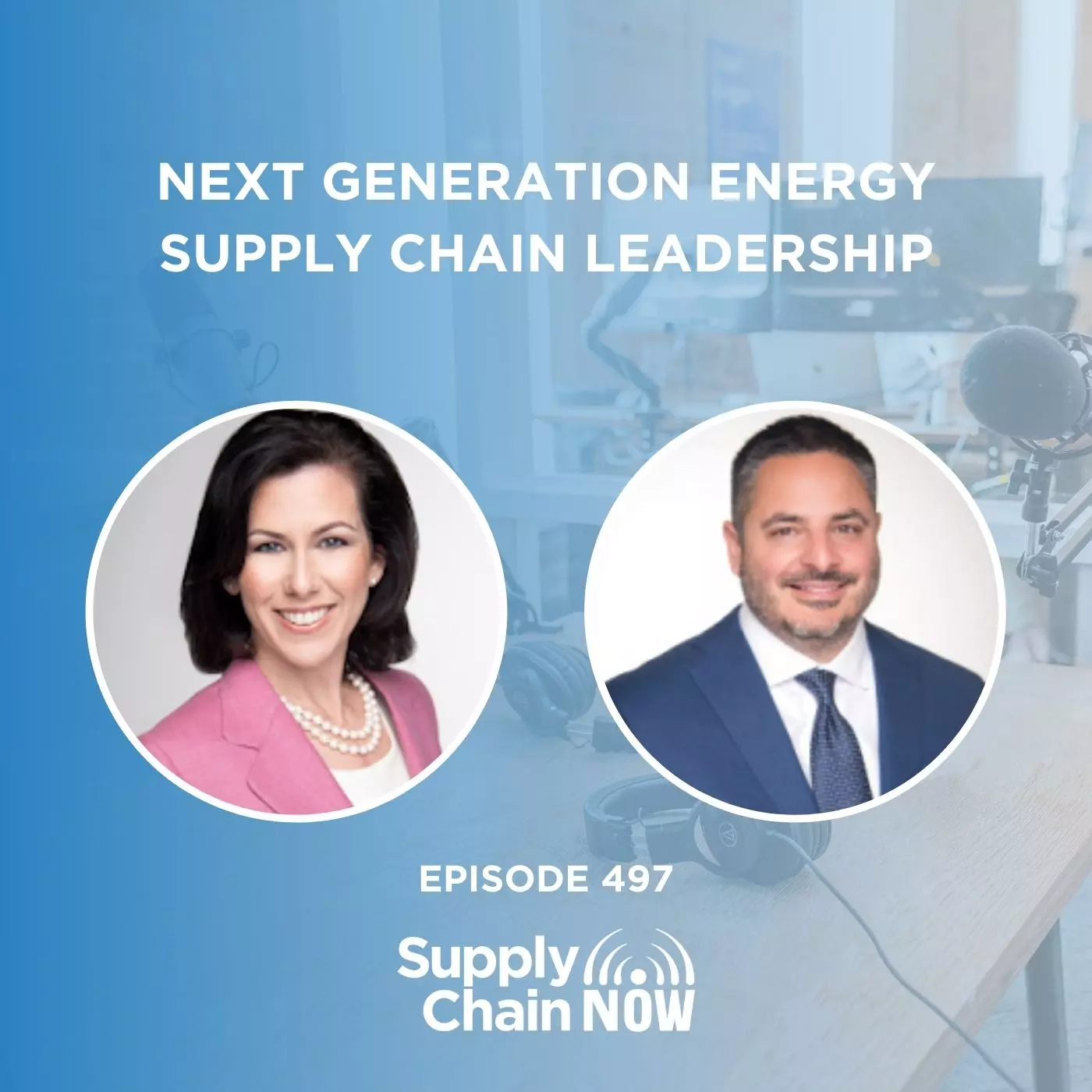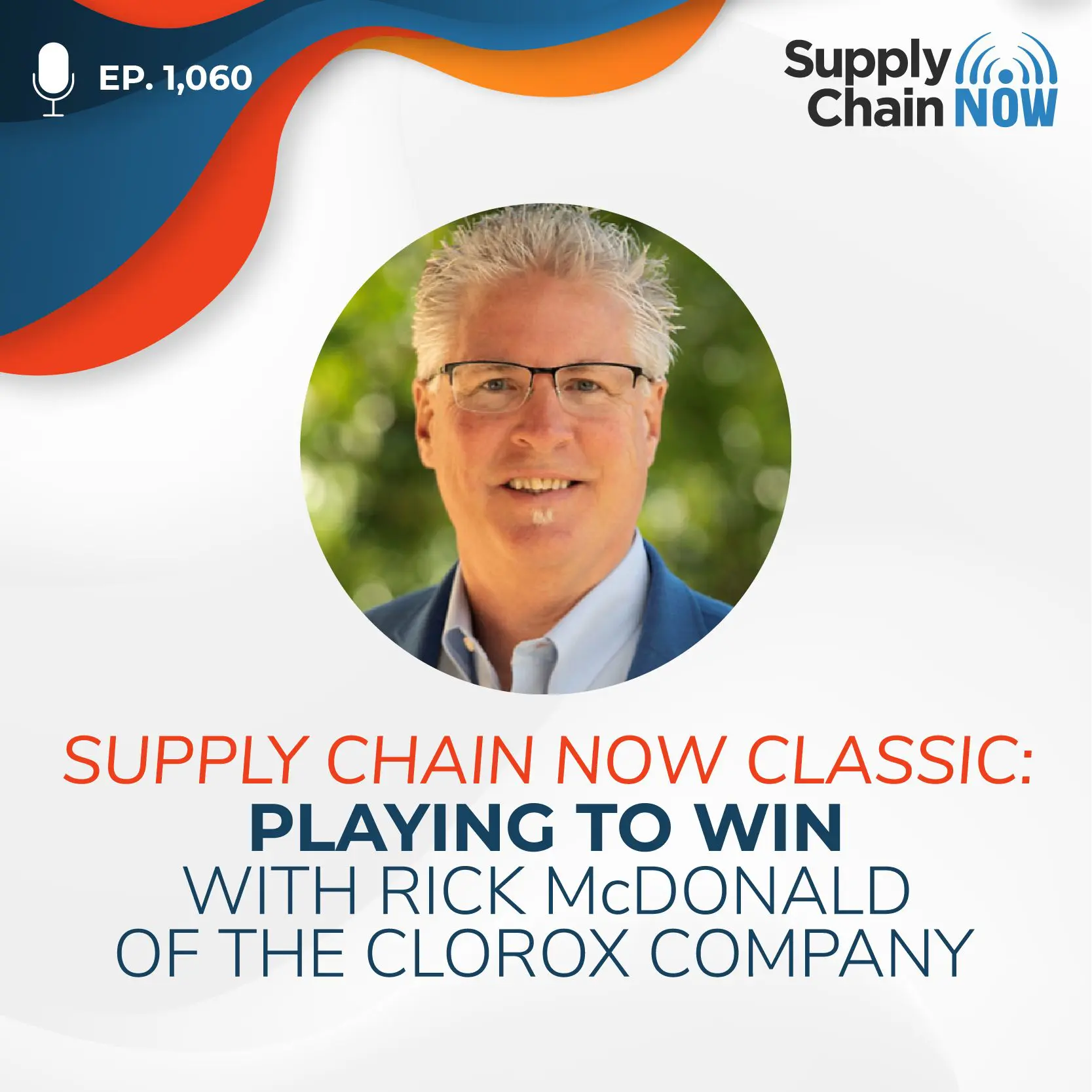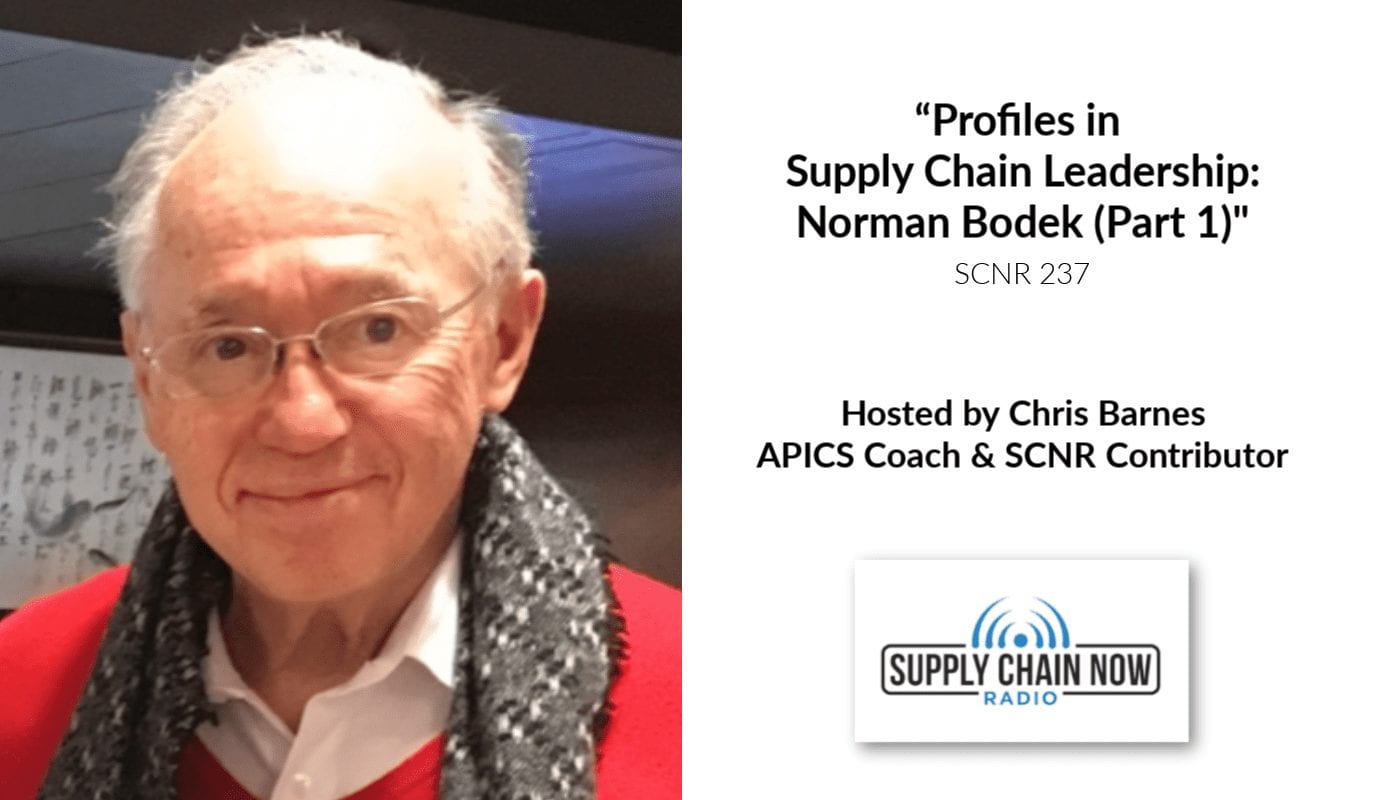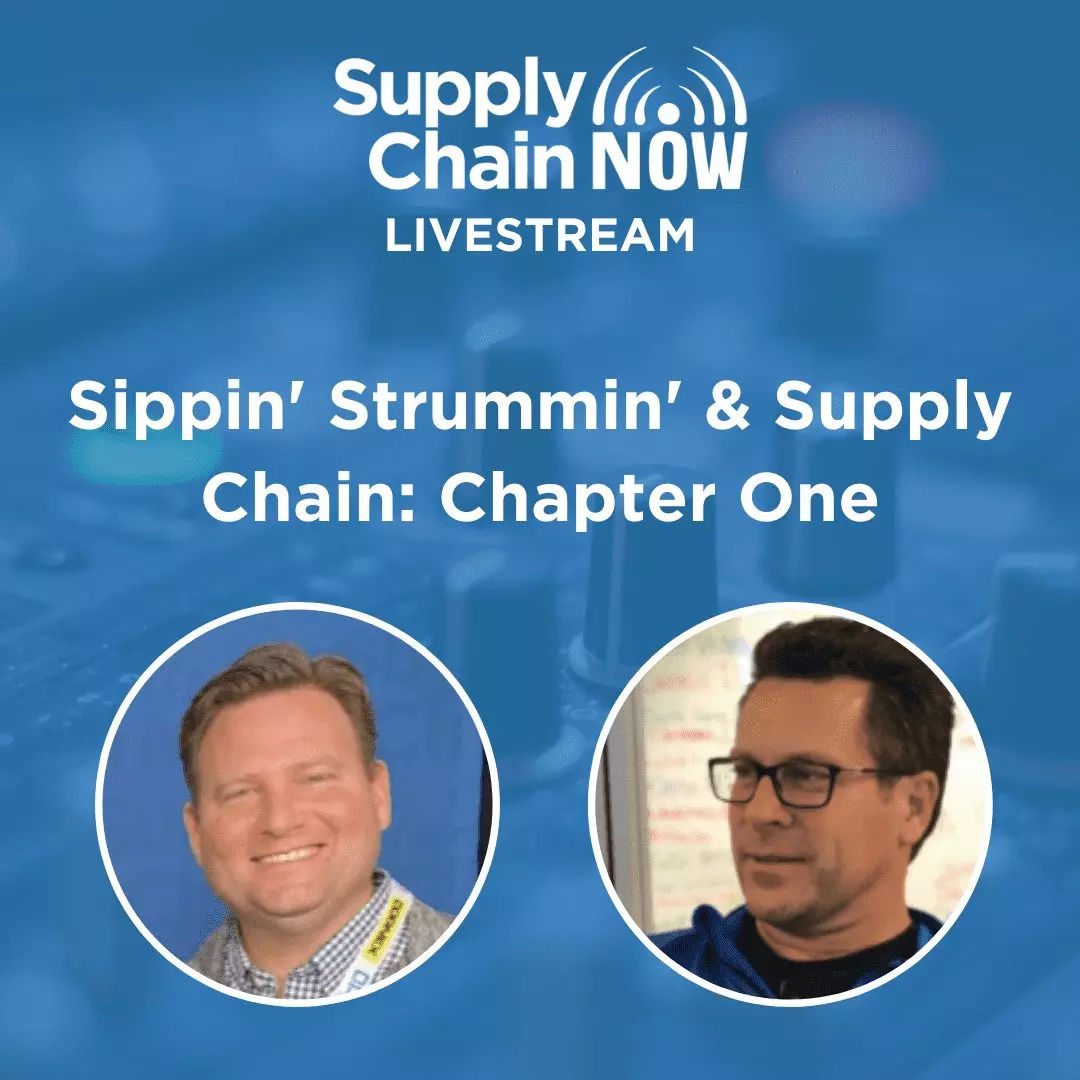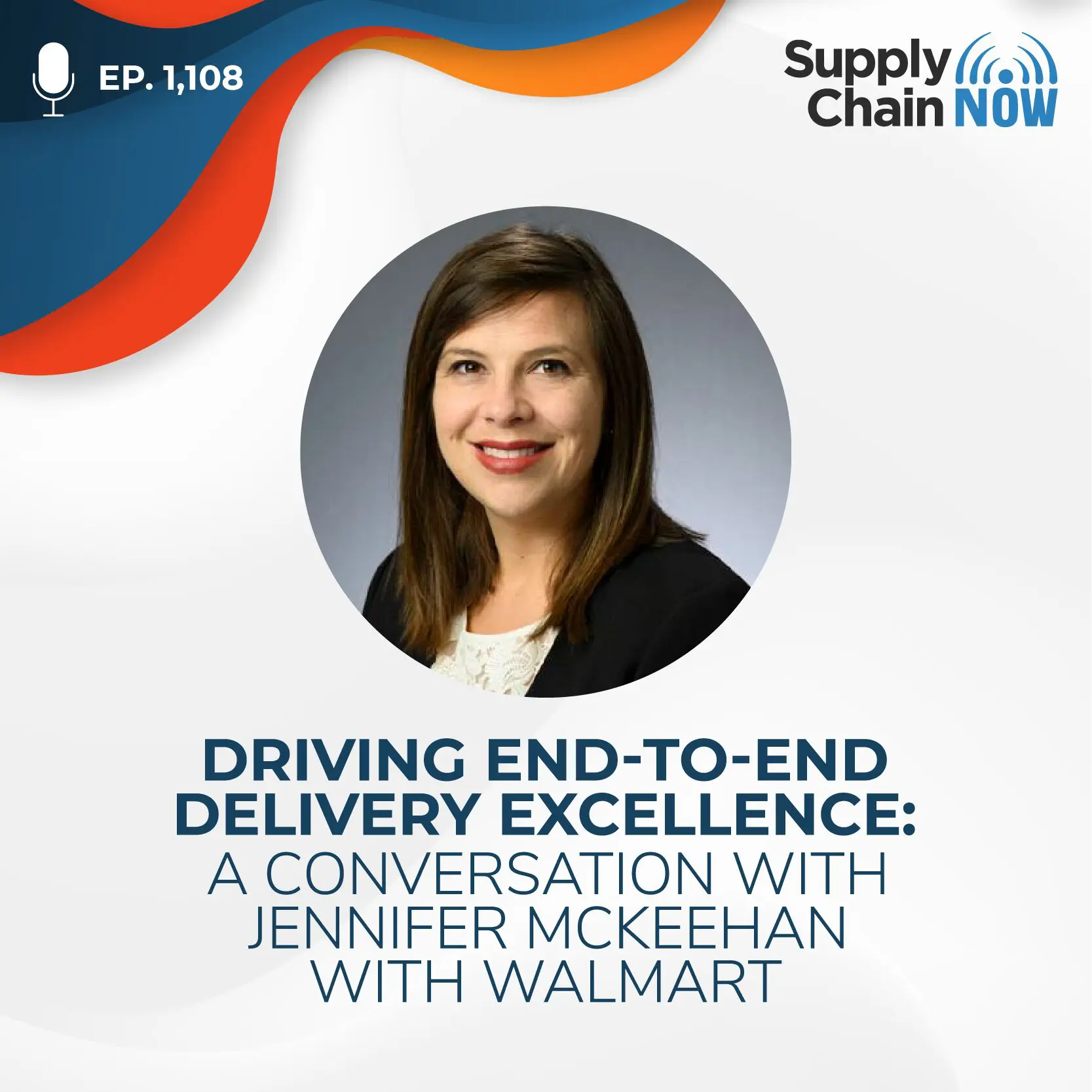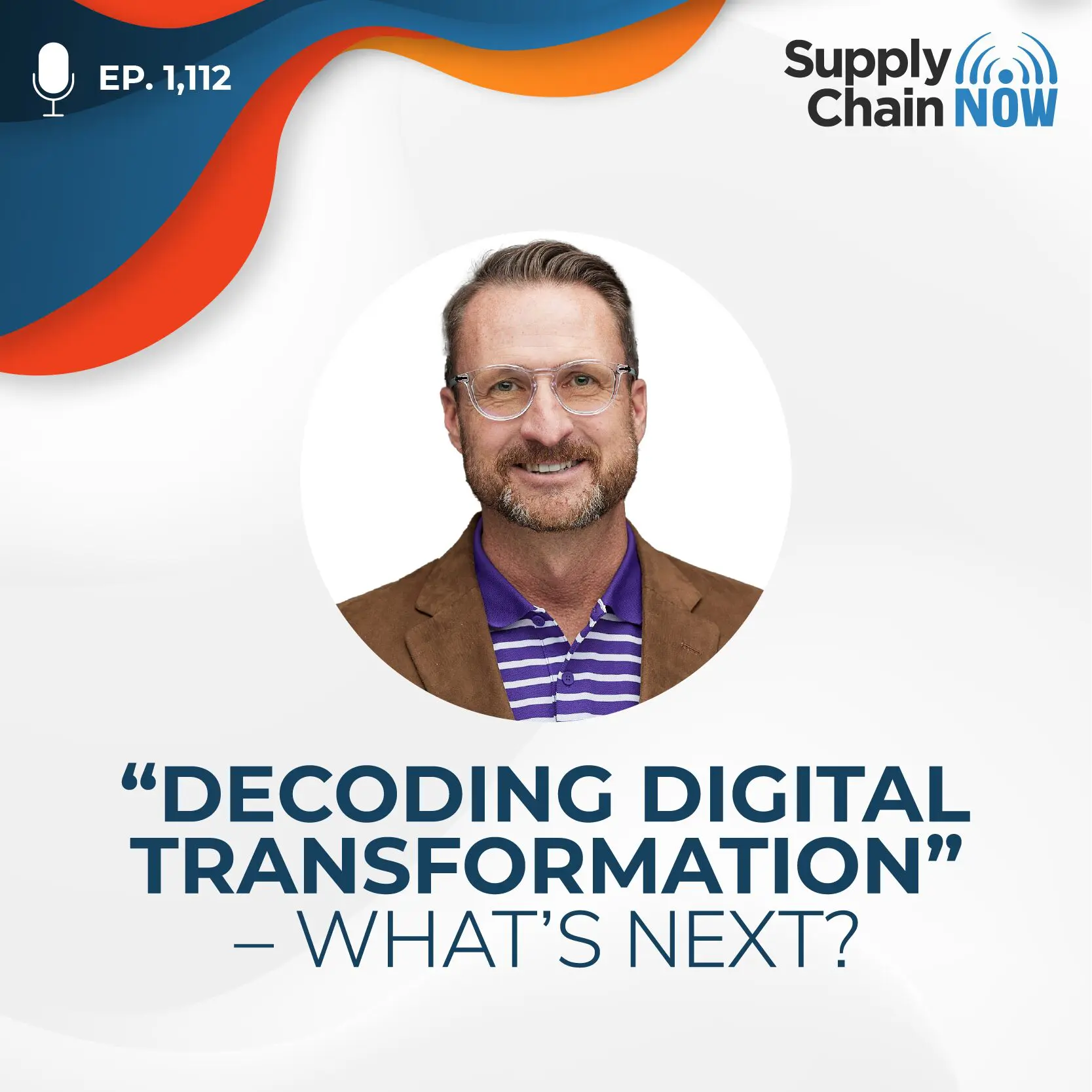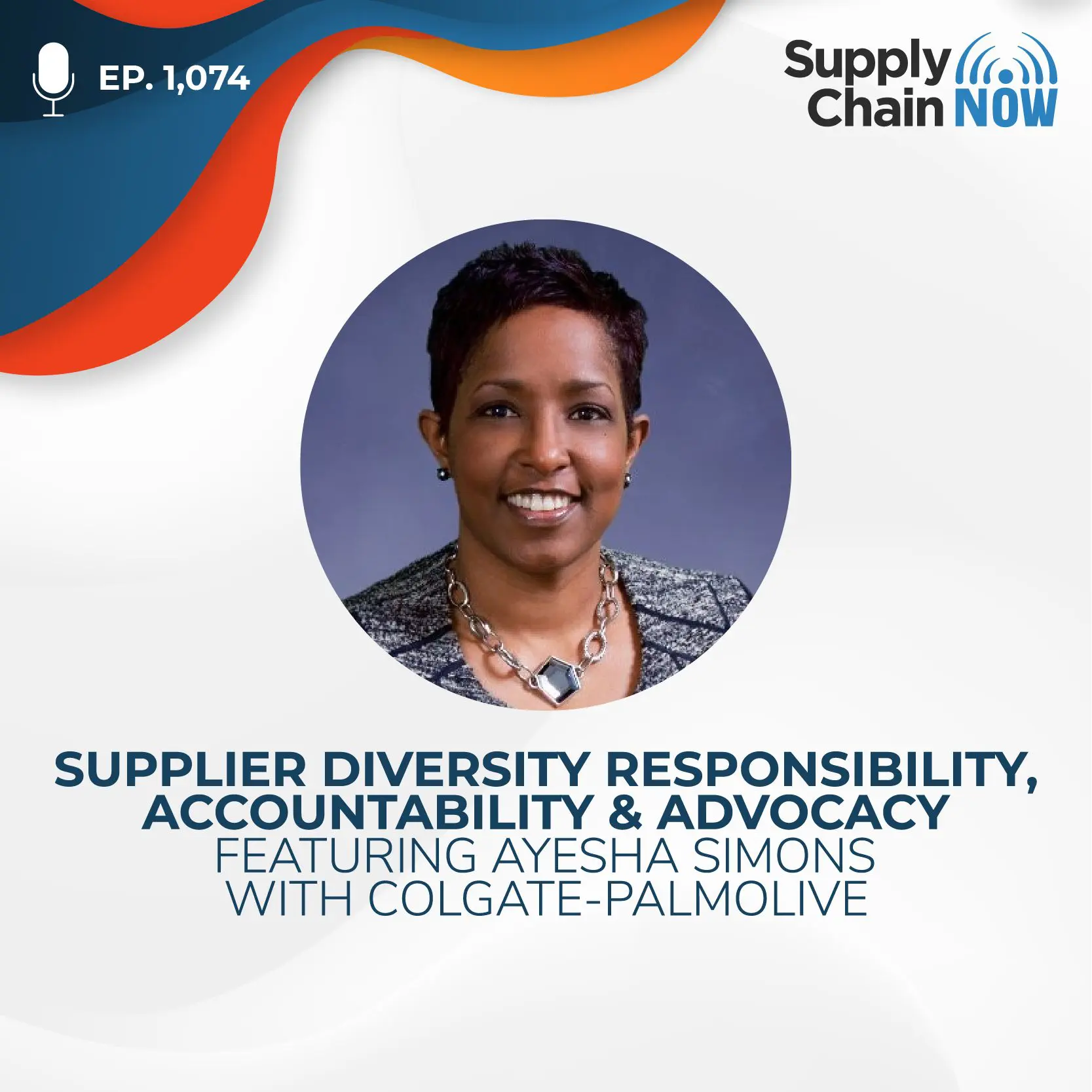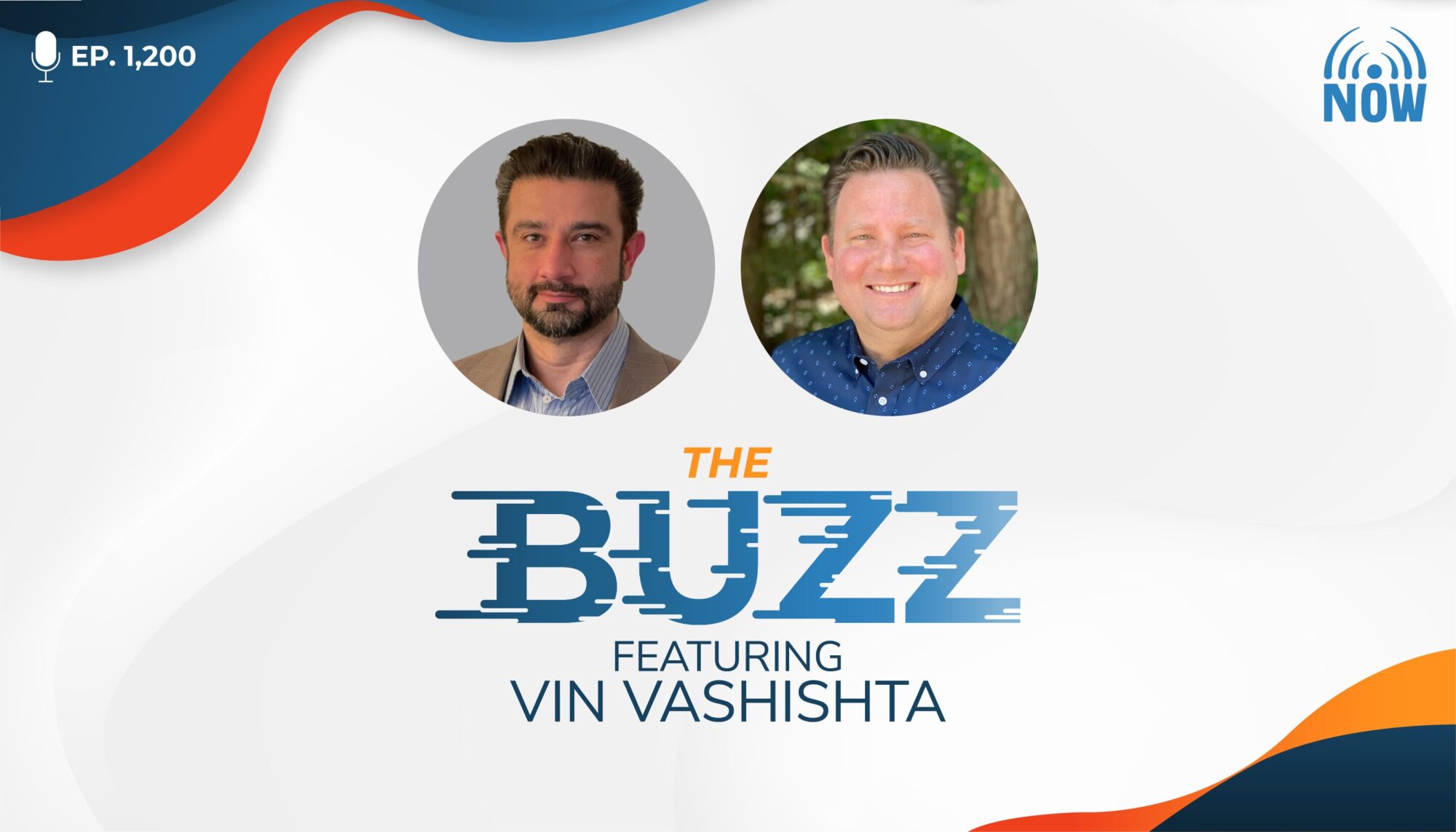
Excel is an amazing tool, but too many companies have put their entire analytics stack on top of its back. It's great for what I call level zero, level one maturity, but you need to try to do things with more advanced analytics, more advanced machine learning models, and really generative AI as well. You need to break the addiction to Excel.
-Vin Vashishta
Episode Summary
The Supply Chain Buzz is Supply Chain Now’s regular Monday livestream, held at 12 noon ET each week. This show focuses on some of the leading stories from global supply chain and global business, always with special guests – the most important of which is the live audience!
In this episode of the Buzz, host Scott Luton welcomes special guest Vin Vashishta, CEO of V Squared, as they share and discuss some of the top news in supply chain. Listen and learn as Scott and Vin discuss:
- The demand for cold storage warehouse space
- How retailers are beginning to report lower inflation and prices across their supply chains
- The latest news in the upheaval at OpenAI
- And much more!
Episode Transcript
Intro/Outro (00:03):
Welcome to Supply Chain. Now the voice of global supply chain supply chain now focuses on the best in the business for our worldwide audience, the people, the technologies, the best practices, and today’s critical issues, the challenges and opportunities. Stay tuned to hear from Those Making Global Business Happen right here on supply chain now.
Scott Luton (00:32):
Hey, good morning, good afternoon, good evening, wherever you are. Scott Luton here with you on Supply Chain. Now welcome to today’s live stream. So folks, as y’all know on today’s show, it’s the Buzz, a live show that comes at you every Monday at 12 noon eastern time. And as always, we’re going to be discussing a variety of news and developments across global business. Now, my partner in crime, Greg White, is on the road today doing research. We’ll call it all set to watch the big Chiefs and Eagles game tonight. He’ll be there in person. So big thumbs up and high five and good luck to our friends in Kansas City, hosting a great Eagles team. We’ll see how it goes. But in the meantime, folks, today we’ve got a big guest here on the Buzz joining us about 12:15 PM Eastern Time. My friend, VIN Vasishta, author of the popular book from Data to Profit, get this founder of the one of the world’s oldest data and AI consulting firms.
(01:26):
So stay tuned for vin’s, take on quite a few tech topics and if, hey, if you’re listening to the podcast replay, which we usually publish on fridays, you ought to consider joining us live on LinkedIn, YouTube or other social media channels of your choosing when we go live each Monday at 12 noon eastern time. That way you can chime in as we’re unpacking these stories. As always, we’d love to get your take as well. Okay, so before we get started here, I want to share a couple of resources on the front end. And we’re going to start with the domestic freight market. Man, no shortage of activity going on there. US Bank released the freight payment index a couple weeks ago for Q 3 20 23. Now folks, as y’all have come to hopefully appreciate from us, the freight payment index is full of actionable insights, critical data, all to help business leaders interpret what is taking place in the domestic freight market.
(02:18):
And hey, some of the good news you’re going to hear today is it’s free to subscribe and get this quarterly report. You can check it out at freight.usbank.com, which you see there pictured in front of you, or I think we’re dropping a link there in the chat. And you’re one click away from adding your name to the list and getting it conveniently delivered to your inbox each quarter. Okay, other resources, we had a blast putting together the latest. With that said, from the weekend, we’re going to be dropping that link as well. So this week we shared news and data and insights and initiatives and resources really from across industry. But one of the things we put in with that said, which by the way is our almost weekly LinkedIn newsletter, I think it also goes out via email, is a really cool initiative led by our friend Joe Peterson to expose a lot more kids to STEM fields and opportunities, right?
(03:09):
I believe that is science, technology, engineering and math, if I’ve got that acronym right? And lately, in recent years we’ve seen the A get added, so Steam, S-T-E-A-M, and I think the A stands for arts, if I’m not mistaken. Anyway, good stuff to get kids exposed and opens up lots of doors and windows and you name it, of opportunities. So check out. With that said, also one other thing about this newsletter that goes out, it gives you an update. Usually we look at the week coming up for our live programming and it’s usually listed at the bottom newsletter. So it gives you a great opportunity to click and join in and get reminders for those live shows. Okay, so we’re going to get into a couple of stories here. As I mentioned, we’ve got a great guest, Ben’s going to be joining us here in probably about 10 minutes, so stay tuned.
(03:51):
We’re going to dive deep into all things technology, ai, what’s going on with open ai and a lot more from Ben’s perspective. And ben’s been in the technology space for, we don’t like breaking the twenty-year rule, but he’s been doing big things for about 30 years out there, so stay tuned for that. But before we get there, let’s jump into the news really quick and let’s talk cold storage. So as reported by our friends at Supply chain Dive, as you may know, there’s been an explosion in demand for cold storage warehouse space. So what’s driving that demand? Well, frozen food sales in the US reached over 72 billion in 2022. Man, that’s an increase of 34% over frozen food sales in 2019. And when it comes to online grocery industry, lots of activity there that market size for online grocery ordering and stuff, well that’s grown at an average rate of 22% from 2017 through 2022.
(04:45):
How many of you out there are ordering your groceries online and getting them sitting on your doorstep? I know Amanda and I have taken advantage of that quite a bit in recent years. Well, there’s been a ton of consolidation in the cold storage space in the US in recent years as well. And now two companies have cornered about 71% of the market. You may have heard of them, Americold logistics and of course lineage logistics as well. Overall, cold storage capacity in the US is some 3.7 billion cubic square feet and adding significantly to that total. Well, it takes lots of time, money, patients, attorneys, and then some probably. But according to Cbre, speculative development for cold storage in the domestic market is up big as of Q-two 2022, there’s some 3.3 million square feet of warehouse space for cold storage in play. Now that’s up from an estimated only 300,000 square feet in 2019.
(05:39):
Okay, so we’re going to move from cold storage to, so as reported by the Wall Street Journal, here’s some good news. Raise your hand if you’d like as much good news as you can get your hands on. Well, I know I can take all of it, right? Lots of warehouse space for it. So retailers are beginning to report lower inflation and lower prices across their supply chains. That’s great news. And y’all know what that could mean. Well lower prices on store shelves. In fact, Walmart’s CEO, Doug Mcmillan was quoted the other day as saying quote, we may be managing through a period of deflation in the months to come. How about that? Sign me up for all the deflation we could get. Maybe. Now, Christina Hennington, who serves as target’s chief growth officer, said last week that the average price of food, beverages, beauty and other routine like everyday items, well that decreased about 3% in the most recent quarter as compared to the previous quarter, and that is wonderful, wonderful news.
(06:41):
Other categories though, not so good news. Other categories that have been more immune to any deflation activity have been physical video games. My son Ben, is active in that market. Well, pricing there has been insulated office supplies, even footwear. So any big fans of Nike, air Jordans, while those prices are still hot, in fact they use prices for some of these things are hot and those prices ain’t coming down. In fact, prices are up about 6% in those categories this season in 2023 as compared to last year, 2022. Now on a personal note, Amanda and I went shopping for Thanksgiving dinner. We’re preparing meals for about 16 folks I think by my account. And you’ll see here if you’re tuned into YouTube or Linkedin. See, this is, I believe these are, I’m going to get this wrong, Amanda. Turnip greens, right? Turnip greens and fresh green beans.
(07:29):
This was some of our prep work over the weekend. Don’t those things look gorgeous? And frankly, turnip greens, collard greens, mustard greens, I don’t care. All of it’s delicious. So I look forward to this. But hey, back to our experience. When we went shopping for all these groceries for our Thanksgiving meal, it didn’t quite cost our first born that we thought we were going to have to part ways with. In fact, for Turkeys alone, we’re seeing data that suggests pricing is down anywhere from five to 22% this year over last year. That’s great news. And I’ll tell you, as I was sharing with Catherine in the pre-show, we got our turkeys, we got two of them for 55 cents a pound. Now that my friends is a deal, 55 cents a pound. Goodness. Alright, so we’re about a quarter of the way through the show. Made a lot of ground, great to have everybody here.
(08:14):
We’ve already dropped links to the articles and resources there and chat y’all check that out. But we’ve got a great speaker here and I want to go ahead and before we hit our next story, I want to introduce our special guest here today on the Buzz. Now Vin Vasishta is the author of From Data to Profit, which has been really popular with readers across the globe since its release Earlier this year, VIN is the founder of v Squared and he has built that business from about client one to becoming one of the world’s oldest data and AI consulting firms leveraging, I’m going to break our rule, but leveraging his nearly 30 years in strategy leadership, software engineering, and applied machine learning. Now with all of that said, I want to welcome in Vin, vashista, CEO and AI advisor with vsquared. Hey Vin, how are you doing?
Vin Vashishta (09:04):
I’m good, thanks for having me.
Scott Luton (09:05):
You bet. Great to have you here with us on the buzz. And I tell you, as I mentioned, I’ve really enjoyed your perspective across social, especially Linkedin. That’s where I interact with you the most. And it’s not just me, you’ve got legions of followers also have been really enjoying your perspective and expertise as well. A lot of fun, huh?
Vin Vashishta (09:23):
Yes, definitely. Technology shouldn’t be intimidating. There should be a little bit of enjoyment in there, right? Well
Scott Luton (09:28):
Said. And as y’all are going to see, he’s got quite a sense of humor, which these times we’ve been through last few years, it’s been really important to maintain a healthy sense of humor for sure. But then I want to ask for a little fun warmup question before we get into a lot of technology topics here today. What is one food dish or tradition that’s a big part of the Vashista household this time of year?
Vin Vashishta (09:51):
Pecan pie? Oh, my mother makes one of those every year and it’s amazingly good. There’s just no way to describe it. It’s so amazing
Scott Luton (10:01):
You had to talk about my kryptonite. It is so good. Now I got to ask you then, do you put whipped cream or ice cream on it or do you just go old school and just by itself?
Vin Vashishta (10:11):
Yes and yes. First you got to put the whipped cream on seconds, a few hours later coming back for some ice cream with it. Oh yeah.
Scott Luton (10:19):
Oh man, that is awesome. Love pecan pie. Alright, and maybe we can convince or bribe your mother to give us a secret recipe maybe.
Vin Vashishta (10:28):
Yeah, that’s not she’d probably. It’s
Scott Luton (10:30):
Not going to happen.
Vin Vashishta (10:31):
Yeah, yeah, no,
Scott Luton (10:34):
We’ll keep moving then. We’ll keep moving. I don’t want to get anybody in trouble. Alright, so a lot of folks don’t have my familiarity with you and hadn’t been tracking. I have. So mainly for context, I shared a few things as part of your introduction here before we switch you on. But in a nutshell for that context, can you tell us a few things about your professional journey then?
Vin Vashishta (10:52):
One of the interesting things about this is I saw one of the first AI hype cycles and most people have forgotten it. It was in the nineties. I went to school and thought I was going to graduate, go work for Microsoft and build AI for Microsoft, which is what everyone right now is also thinking they’re going to graduate and do. That’s right. But in the nineties we had a first hype cycle, it broke. I had to spend about 15 years doing more traditional software development, software engineering, delivering products really on the ground talking to customers and hands-on building, developing engineering systems. And so that set up for about 2010 when data analytics bi, all of that kind of came back around, data science became a realistic field again. So I found AV in 2012, began building some fairly complex implementations, realized really quickly had to talk to c-level leaders, had to talk to the rest of the business because we were asking for some pretty big checks to be written and we had to stay closer to value than most. And I think it’s one of the unique things about my journey, ai, you hear it and you think research far out, maybe we’ll get returns in three to four years, but I was always sort of dragged into, if you can’t deliver quarterly, you’re probably going to get that budget cut pretty quickly. So I’ve stayed closer to value than most people and that’s really defined my journey for the last almost 12 years now. Well,
Scott Luton (12:21):
So Vin, I really appreciate one of the points you brought up because if you’re out there, we just did a show, Catherine and Amanda behind the scenes, we did a show a week or two ago that we can’t sit and wait for three or four years waiting on those results. I mean, if you’re not getting to your point, if we’re not getting results in under 90 days, I mean that’s the opportunity. That’s where technology is. You find the right partner. So I really appreciate you bringing that and for that matter, that’s where the necessity is, right? The market and your customers and the industry doesn’t have time for three or four year long implementations and then we get started to see some fruits for our labor. So I really appreciate you bringing that to the table Vin. And by the way, I got to say, I just got to say it, I told you in the pre-show you’re baritone, do you sing in any barbershop quartets or do you have a solo career waiting on you because you’ve got this baritone voice that’s just easy to listen to.
Vin Vashishta (13:12):
No singing. If I start, lemme tell you my singing voice, it can clear a room.
Scott Luton (13:18):
Okay, all right. All right, so look you ball moving then I’ll make reminders to myself. Don’t ask about mom’s pecan pie recipe and don’t ask about singing. Okay, we’re building a list. So let’s get to work. I want to share our third story here today. I’m got this little graphic here because this comes to us from our friends at Cnn and I’m get your take. Lemme unpack a little bit, kind of the latest greatest as of two hours ago or so, and then I’m going to get your take. So’s been making a bunch of waves. OpenAI made big news last week firing its CEO Sam Altman. And this morning, according to Cnn and many other outlets, Microsoft has swooped in and hired Altman to lead its artificial intelligence efforts lead to new heights. Greg Brockman, who also was in the news in the last week or so, he’s another co-founder of OpenAI. He’s going to be joining Microsoft along with Sam man, quite a duo there. Now you might not know, Microsoft is Openai’s biggest stakeholder as a company. Made a 13 billion investment in the startup behind the popular chat gpt platform. And as Cnn reports that the platform has now over 100 million active users and about 90% of Fortune 500 companies, they say at least are using the platform for internal gains and operations. So ask you, then you got your finger on the pulse. These are your people, this is your space. What’s going on over at Openai?
Vin Vashishta (14:36):
It’s interesting that the board has decided to take these steps. There’s almost been no communication outside of saying that the communication between the CEO and the board broke down. And that has as of now been the entire rationale. It’s a head scratcher what’s going on behind the scenes. Obviously we don’t know what caused the board to move in this direction, but over the weekend almost 600 employees signed an open letter calling for the board to resign and for Sam to be reinstated. It looked like Sunday night that’s what was going to happen. And then it all sort of fell apart. I mean this feels like a trade deadline type of drama. And now we’ve got two of the best players really in the data and AI leadership space moving to Microsoft, which gives them really think about all of those people from Open Ai who are now less than happy with the company they’re at, potentially moving to other companies.
(15:39):
So you’re going to see an outflow of talent. A lot of it’s going to go and follow Sam and Greg into Microsoft. Some of it’s going to go to competitors, people like Anthropic. You’re going to see Google, probably Amazon pick up a few. Nvidia is circling around as well. And that’s one of the interesting side lights of this story is you’ve got Sam who’s wanting to create a chip startup and there’s going to now be in alignment there between Microsoft’s chip ambitions and that vision I guess that Sam has for breaking Nvidia’s monopolies. There’s tons of storylines here.
Scott Luton (16:15):
It really is. As I was diving deeper and deeper, it was like a rabbit hole and I was like, okay, how can I share just a few bullet points here because we could spend three hours, but I really appreciate that vin and we’ll see. We’re going to keep our finger on the pulse and see how it develops. I’ll tell you, I’ve really enjoyed experimenting with chat gpt. So folks, if you haven’t yet, and this might be an overarching theme, I’ll get vin’s take here, but if you’d never dealt with platforms like a chat gpt, sign up even for the free version, experiment with it And what we’ve learned, VIN Pat talking about it last week with Kevin L. Jackson, the prompts, prompts are so important for how you can use a tool. And folks with that said, which is a newsletter I shared on the front end, we included a link to a very popular post on Linkedin with over a thousand, I believe a thousand different prompts you can use with chat gpt. So check that out. And if y’all recall, if y’all joined us last week, Kevin was talking about the rise of prompt engineering in terms of a field out in the industry. So Vin, whether you comment on encouraging folks to lean in and experiment regardless of what they know or don’t know or whether it relates to the criticality of prompting these different platforms. Your final thought around chat, GPT, OpenAI and everything that’s going on over there.
Vin Vashishta (17:22):
The bigger theme is stability. If you look at Openai as a viable partner for most large businesses, the instability is going to become a massive barrier. Looking at more stable options, Azure has the same models. You can run gpt on Azure and it’s a Microsoft platform more stable. And when it comes to trying things out, great from proof of concept pilot project perspective, they also have co-pilot. So speaking of trying gpt, you can also try co-pilot a ton of, I mean that’s a ton of potential there as well. So definitely try those out.
Scott Luton (17:57):
Agreed. Vin, you’re reading people’s mind. Gino says Microsoft is certainly happy. Gino says they’re charging 30 bucks a month for co-pilot and now they’ve got Sam Altman. He thinks this is a pivotal moment that we’ll be talking about for a long time. Excellent point there. Gino and Korai. Koze, great to see you Korai. I appreciate what you and the whole gang here are doing out in the industry. Korai says damage is done, confidence is lost and trust is hard to regain your rights. Tough gino to get back in the bottle. Korai says, while we often say industry giants decisions are slow and ambiguous, seldomly, do you see such politics fall out in public? Good point there. Korai. Okay, VIN, I have to move forward simply out time. I’m fascinated with a lot of what you shared there about what’s going on, kind of what we’re seeing on stage, but also what’s behind the scenes.
(18:44):
That’s got to be an intriguing story as well. Now I told y’all as we start to pivot here, I told y’all Vin had a great sense of humor. So I’m going to pull up this graphic here. And folks, if you’re listening to us find the video version, what we’ve done is I’ve cherry picked some of Vin’s Linkedin posts mainly, and he’s got all these great images in here. I’ll describe this for folks that may be listening. He’s got this meme that says when you make an excel joke at an analytics conference and the person’s car has just been destroyed by all the revenge seekers, I guess. So I’m going to start with this Vin. And again, I appreciate your sense of humor. I gathered this from one of your posts about a variety of your hot takes that always seem to really set off conversations across social when you drop ’em there or as part of in-person discussion. So I’m going to start with what I just mentioned because we pick on Excel a lot. Tell us how you really feel about excel Vin.
Vin Vashishta (19:32):
I think Excel is an amazing tool, but too many companies have put their entire analytics stack on top of its back. And even Microsoft admits this is not the right way to go because from a data governance standpoint, accessibility really so many different dimensions, having excel be the front end and really the tip of the spear for your analytics stack, it will hold you back from all the other maturity steps that you need to take. It’s great for what I call level zero, level one maturity, but you try to do things with more advanced analytics, more advanced machine learning models and really generative AI as well. You need to break the addiction to excel.
Scott Luton (20:15):
Yes, yes, I probably have an excel spreadsheet on one of these monitors pulled up somewhere. So I hate to talk out of both sides of my mouth Vin, but you’re so right there is as comfortable, as convenient, as easy as it is. And we’ve all become accustomed to working with excel. Gosh, there’s so much more capable and dynamic technology out there that we need to spend time figuring out how we can get more gains out of using different things. Now, kind of to your point, VIN, is that right?
Vin Vashishta (20:39):
That’s true. There are a lot of better tools out there. There is a ton of self-service tooling that you can take advantage of. And part of data maturity and AI maturity is embracing some of the more technical aspects. But over the last five years, technical has a different definition. You think complexity every time you hear technical, it’s not complex anymore. It is simple. And some of the generative interfaces, even talking about generative ai, they’re making self-service much more powerful and much simpler, a whole lot more accessible than it used to be.
Scott Luton (21:13):
Well said. And that’s good news for all the people out there, right? Because I’ll be the first to raise my hand. I’m not the most capable technologist out there and if they’re making tools more approachable for folks like me, that’s really good news for all of us out there. Alright, so I’m about to move to the second take. I’m going to get vin to weigh in, but folks don’t take our word for it. Use this link. You can find all of, I think there’s five hot takes that Vin put in there, including a couple of things he got wrong. I really appreciate that. It’s important that we can all admit when we get things wrong and that’s the word. Hey, if we’re not getting things wrong, it means we’re not trying hard enough. Maybe Vin, I want to ask you now that we have risked at least automotive harm with picking on Excel a little bit, let’s get your take on dashboards because if you think about a handful of terms that you probably hear every business leader out there, say at least once an hour, it seems dashboards have been one of those things in recent years.
(22:04):
Your thoughts on how we must use dashboards these days?
Vin Vashishta (22:09):
I think the purpose of dashboards is positive. We want to first understand the business better. Sometimes we want to understand our customers better or the external systems, supply chains, great example. But marketplaces in general, we want to understand them in simplistic, easy to read terms. So the intent unbelievably good, but we have to look at dashboards as something that users need to be empowered to own and to be able to create on their own. When we ship that off to the data team, the roi for dashboards is always negative when we allow people at sort of the middle level leadership layer and the front lines to be able to own their own dashboards, be able to managing a lot of their own data needs. It’s number one empowering. Number two, it requires access to high quality data and that becomes an obvious benefit to people at the front line.
(23:06):
So there’s more buy-in for it. And like I said, that ownership, the empowerment, that part’s huge. Once that starts going, and like I said, you sort of break the excel addiction, you start using more advanced tools, you begin to get sort of excited and into it. Technology is less intimidating. You begin to use some of these tools and you’ll realize it is very easy. We think about technology in the C paradigm, which is where I started. It’s not anywhere near that complex anymore, so don’t look at it in the legacy old school. Hard to manage technology isn’t that way anymore.
Scott Luton (23:42):
I love that Vin. And since you said, see I started my journey in, let’s see here, I’m going to date myself, but who cares? I’m old. Fall 1996 I think when I finally started school after a little bit of time in the Air force and I started in a write-in my advisor, put me right into AC plus plus programming class event. And I found out quickly how this was not a good match for what my gifts were in life. But anyway, I had a great profession, Dr. Cannon, whatever Dr. Cannon is doing these days, he was so patient and helpful and willing to not leave anybody behind even in that class. So wherever you are, Dr. Cannon, I appreciate what you did there. Okay, so folks, again, we’ve hit excel, we’ve hit dashboards, you may not agree, you may agree, you may not agree with what vin’s sharing.
(24:23):
Let us know what you think and if you don’t want to do it here on the show again, we’ve dropped Vin’s hot takes there, one link in the comment and one click away from chiming reading them in full and chiming in as well. Alright, so Vin, where are we going next? We’re going to go with data gathering. I’ve gathered a little meme here that you used out there. And again, I’ll read this for the folks maybe listening in one shot. It’s got this, I’m going to call ’em a roman Legionnaire maybe, and it looks real brutal and ready to go into battle and it says data scientists trying to gather data and then the shot below is like this army of thousands if not millions, and it says what they have to go through to get the data. And vin, I appreciate the sense of humor, but a lot of folks look at that and they know exactly what you’re talking about. And this data gathering, no matter what state your data is in, can have a massive impact on the overall success of your digital transformation. So speak to that. What’s your thoughts on data gathering? Well,
Vin Vashishta (25:17):
I think the first thing we have to understand is that we now exist and businesses operate in a multi-technology environment. When we say digital transformation, that’s just one of a series of transformations. We’re in a cycle of continuous transformation. And what that means is data needs digital. And that’s sort of a what are you going backwards? No, if there was no technology there, how are we going to get the data? I mean it does not, the clipboard method doesn’t work. So we need some sort of technology in place to give us access to workflows, these data gathering, data generating systems. And when you focus on the data generating system itself, you get some context along with the data. That context is critical because it represents just a little bit of domain knowledge. It’s whatever it takes to run that part of the business or that workflow or create some value for the customer, deliver them an experience.
(26:13):
And when we think about data gathering in those terms, all of a sudden it’s relevant to the people who are really hands-on connected to those processes, to those workflows, to those customers. And now there’s a connection. It’s not just this data, digital ai, whatever. Now we’re connected to it. And like I said, those self-service tools really open it up. So now there’s need on both sides. It’s not just the data team needs access to data, it is also those people who’ve been empowered with tools who need access to data and want access to their data. But it’s also data from across the enterprise. One part of the business could need data from 3, 4, 5 different other organizations. And that level of transparency, understanding how we impact upstream and downstream, so critical. So the transparency component of it, really moving the business from, I don’t understand myself fully to I can have access and visibility, transparency into any part that I need to in order to do my job. Those are huge. And right now it’s too hard.
Scott Luton (27:20):
A lot of goodness in your response there. And I want to pull two things out, that context, every time we introduce folks here on the buzz, the context for how they view the world and what they’ve experienced is so important. And by extension, how we view data and the context in terms of how it’s delivered is so critical. So that’s a great point, Ben. And then another thing you referenced is understanding the changes we make here and how that ripples upstream and downstream is so important, especially when you think about things in terms of supply chain management because every move has reactions and counter reactions, you name it across the supply webs as I put it, because these days it’s not even necessarily linear. Alright, good stuff there. I love the memes. I want to go back for a second. Randy asked a great question here, Ben, I’m going to pose this to you. Going back to Excel. So Randy says, Hey, for some of the older Excel users, is Power Bi or Tableau a resource to look at to transition away from Excel? Your thoughts, Ben, those
Vin Vashishta (28:17):
Are great. Yes, absolutely. Look at what makes the most sense to you and don’t make the decision in a silo look at this tool as being something that will be enterprise-wide versus business unit or organization-wide. When you make the decision that way, you’re going to pick the right tool, not just for yourself but for everyone and everything. After that, all the initiatives get cheaper because you have a lack of redundancy. You don’t have to do the same thing four or five times.
Scott Luton (28:47):
Well said, great question. Randy, appreciate you being here and a great question there. Alright, so Van, appreciate you taking a moment to respond to Randy’s question. We’re going to keep driving here. We’ve got a lot more to get into here on the buzz on what is it, November 20th, 2020, twenty-three. That’s hard to believe. So a lot of folks then are sounding the alarm and I’ve shared another graphic here. They’re sounding the alarm that Ai’s coming for our jobs. Bots are coming for our jobs and we’re sharing a graphic. If you’re listening to us, we’re sharing a graphic and a couple of bots are like, Nope, you can keep it. It’s your job. Don’t want it, not interested. So then in light of that tidal wave of, I’ll call it fear, I’ll call it maybe assumptions are being made, maybe disengagement, they’re not taking time to maybe truly understand what’s going on as companies really embrace artificial intelligence. So is it really coming for folks jobs, VIN?
Vin Vashishta (29:40):
I think it is coming for parts of all of our jobs, and that’s from Ceos all the way down to frontline workers. And it doesn’t matter what part of the business that you work in, IT is coming for part of your job. The majority of those parts are repetitive. They take low decision intelligence. I don’t call ’em low skill, I say low decision intelligence. So the things that we do better than machine learning models fall into those where we can apply domain expertise, where we can apply some creativity to think in ways that haven’t been tried before, to look at new approaches, to put together sometimes more complex patterns. But the key is to look at how do I embrace the tool to become more productive? How am I going to leverage these utilities so that I’m spending more time on the high value activities and less time on the low value?
(30:44):
What you’ll find in most in my research and a ton of other researchers have seen the same thing. Most workers are overworked. You have more work than you have hours to complete. So the amount of time that you can spend on those high-value tasks is actually much lower than it should be. And when you can offload some of your, I call ’em cheap and cheesy tasks, you can offload those to an AI bot, that’s when you start to deliver greater value to the business. It’s not that you’ll be working fewer hours or anything like that. You’ll be spending those hours on things that right now you just don’t have time to pick up. I
Scott Luton (31:24):
Love that on so many different levels. It’s so well put. AI certainly is coming for a part of all of our jobs and really that’s not bad news. That’s good news to the point that Finn was just wrapping up on because I’ll take something and maybe a lot of our listeners or audience members may can relate to this image I’m about to paint because then I’ve seen whether it’s cartoons growing up as a kid or movies or whatever, but ICE used to be delivered in a horse drawn wagon in big old blocks. And we’ve seen probably this archaic 18th century scissor like device that they lugged the cube ice into the house wherever they’re delivering. And if folks didn’t lean into modern technology and machinery and modern supply chain practices, there’d be folks still delivering ice just like that. Very inefficiently and probably not in a very rewarding job and role. And while that might be a bit extreme, then still a portion of that applies to today as you put it, whether you’re in the front or whether you’re in the c suite or all points in between, how can we make our jobs easier, deliver more for the business and lean into what I’ll put it, the more fulfilling and rewarding and creative work that May is not just better suited for anybody for AI to take and run with Finn. Is that right? It
Vin Vashishta (32:40):
Is. There’s a couple of things that we won’t give to AI leadership. AI shouldn’t lead people and we won’t let it do that. It can’t handle those complex decisions where they’re high stakes, but they can support them. And we have high uncertainty. Data’s really good at that. Models are very good at giving us forward looking prescriptive views. So there’s places where it’s definitely going to make us more productive. I mean easy example at prioritizing your inbox every morning. Wouldn’t it be nice if all of those emails had an accurate prioritization ranking? Yes,
Scott Luton (33:12):
Yes, I’m sold. Sign me up. Yeah,
Vin Vashishta (33:15):
Exactly. We think sci-fi and flying cars type scenarios and really it’s not. It’s simplifying our lives and customers too. Don’t forget your customers. You can simplify their lives a lot.
Scott Luton (33:27):
Yes. Yeah, it’s been a while since I made this reference. Vin. Before we get into asking you about one of your regular misunderstandings as it relates to AI out in the industry, I want to ask you, have you seen that movie? I think it came out in 2013. It’s called her.
Vin Vashishta (33:41):
No,
Scott Luton (33:41):
You hadn’t seen it? No.
Vin Vashishta (33:43):
Okay,
Scott Luton (33:44):
VIN, we got to add it to your list and then we’re going to bring you back on in a few weeks or a few months and then get you to respond to it. A long story short, some of our listeners may know where I’m going, but this human falls in love with the voice behind the AI on his smart device. And I can never remember the actor’s name, Amanda and Catherine, you’ll help me out. But anyway, you got to check it out. Vin, the ending of this movie, it’s always sent my mind racing. It’s one of those where they don’t give you a definite clear cut, black and white finish, but how they do end will really provoke thoughts. So Vin, that’s your homework to check out the movie her. How’s that sound?
Vin Vashishta (34:19):
I think I can do that. That’s the good kind of homework.
Scott Luton (34:22):
It’s Joaquin Phoenix. Thank you Catherine, Amanda, Joaquin Phoenix. I always get that wrong. Okay, so there’s a lot of great news and what Vin is sharing across the board here today, but in particular what he shared in terms of his AI coming for our jobs. So Vin, I appreciate you being an advocate and a proponent and a voice in the digital wilderness sharing the good news folks need to lean into when it comes to modern technology and especially artificial intelligence. But there’s a lot of, like I was talking about earlier, that tidal wave of just folks just not in the know, right? And there’s a lot of folks talking about artificial intelligence and other machine learning, other technologies and just don’t have it, right? So I’m going to ask you, VIN, in all of your conversations and your classes across from social to your keynotes and the consulting work you do, what is one regularly occurring common misunderstanding of AI that you see out in industry?
Vin Vashishta (35:13):
Well, I think the biggest one is that this is something that we can go straight to, that we can go for wherever we are today to ai. And that’s the misconception that’s really at the root of so many other challenges that businesses have. You need data. You need data in a good format, you need access to first-party data. And those are all really that upfront component, that upfront work that needs to be done in order to get to more advanced machine learning, deep learning. Eventually we really will have ai, but that’s still sort of far off in the distance. Think about quarter to quarter as well as setting up for long-term. When we think about ai, we think about sort of futuristic scenarios and somehow leapfrogging our way there and it’s just not how it’s going to work. Incremental approach. It may feel like it’s going to slow, that might feel slow, but you’ll end up getting to your outcomes faster and delivering value at every step along the way. So don’t look at it as a single step, look at it as an incremental journey that you’ll get value out of in the near term.
Scott Luton (36:29):
Well said. And if you could also, how would you advise if you had just a sixty-second sound bite to offer up leaders out there that are contemplating all of these AI projects and initiatives or in general technology projects, initiatives? I’ve always used this phrase, hey, do it with your people, not to your people. Any quick leadership advice you’d offer up business leaders looking to take advantage of modern technology. I
Vin Vashishta (36:52):
Would say start with your core strategy. Don’t feel like you have to change to take advantage of ai. AI should serve core strategy, do two types of opportunity discovery. Two, it’s critical top down, which is that cxo leadership level where core strategy, big opportunities, long-term vision bottom up is just as critical. The people that touch the workflow every day and talk to customers every day, understand where the gaps are. And the thing about data science, machine learning, ai, we can deliver value in ways that was not possible in the past. So we can look at new opportunities or revisit opportunities. Again, look for those. Don’t think about, oh, I’m just going to change from a digital solution to a data analytics or advanced machine learning solution. Look at it and say, this is greenfield, this is brand new. We’ve never been able to do this before and frontline people are telling us this is a problem. And that lines up exactly with what you said because that’s a great point. You don’t want this done to frontline organizations. You want them being part of it.
Scott Luton (37:58):
Excellent point there. Vin and folks, if you heard of there, top down and bottom up, you got to do both, not just one or the other. Do both there. Great advice from Vin here today. Okay, so Vin talk about more good news here today because you’ve written this book from data to Profit and it’s really blown up. I think you’ve gotten a lot of good feedback. I’ve gotten a copy or two, maybe seven on the way.
Vin Vashishta (38:19):
Thank you. Thank you.
Scott Luton (38:21):
But if you had to, and this is a tough question, it’s not a fair question, but I’m going to ask you anyway. We have limited time, but if you had a key takeaway or two that you hope readers will have from your book here, what would those things be?
Vin Vashishta (38:34):
I think the first one is you need a single playbook. If the enterprise has multiple playbooks running around at the same time, your AI strategy will go in that many different directions. So one AI strategy, one playbook, one vision. Don’t let each organization come up with its own version that ends up competing with each other. Let them use data and AI strategy as a framework for decision-making so that anyone across the enterprise could come to the AI strategy document and understand what’s the direction, how does it connect to core strategy, what does it mean for them? Those would be my key takeaways. Really the purpose of that strategy is certainty, the information necessary to do those incremental, but also alignment in those incremental initiatives. If you’re delivering value quarter to quarter, if every part of the enterprise is touched by it, it’s entirely possible for to go in several different directions. The strategy’s that unifier
Scott Luton (39:34):
So well said, it reminds me of then we’ve got an episode coming out probably this week or next week with my dear friend Anisa Mathana. And Anisa runs a couple of manufacturing organizations. She’s a manufacturing industry. The term influencer’s thrown around and I’m not a big fan of that, but she really has an impact on what goes on in the manufacturing world. And Kevin and I had a chance to sit down with Anisa last week and she really echoes in her own digital transformations with her teams, a big chunk of what you shared there because that transparency, as we answer the questions that any team member’s going to have, Hey, why are we doing this? What’s in it for me? Where are we going? That transparency of answering those questions and not only the alignment that we get from that, which is really important in and of itself, but the trust that we gain from having those conversations, that’s how we move mountains and industry. And so Vin, I appreciate you echoing what we’re seeing out in the industry with your expertise here today. Yeah,
Vin Vashishta (40:28):
Those are all great points. Thank you for having me. I appreciate you having me on.
Scott Luton (40:32):
Hey, we’ve been working on to get this done for a while, as busy as you are and our production schedule’s been crazy as well. But I love what you’re doing. I really am, particularly as we’re almost up against time here today, but I love how you really bring technology to where anyone can understand it. And I think that is so critical for this age that we’re in as we look to empower our people. Well, one of the things that we know will not empower ’em is when they are fearful of approaching and using modern technology. And I feel like you’re on a mission vin to do just that, to make sure they understand how to lean in and take advantage of this wonderful world of technology and where we are today. But Vin, how can folks connect with you if they want to compare notes, if they want to have you speak to their team, if they want to get involved in some of your training or check out your book, how can folks connect with you? Vin easy
Vin Vashishta (41:20):
Way. You can find me on LinkedIn, just search the name up or Datascience.vin thank you to the French wine industry for naming a domain after me. I greatly appreciate that.
Scott Luton (41:34):
Oh gosh. Hey, whatever it takes y’all reach out to Vin tell you, bright, funny, personable, engaging, impactful, and he’s kicking his own dent in the universe for sure. So big thanks to Vin, baschista, CEO and AI advisor with v Squared. Vin, thank you very much. Thank you so much for having me. I appreciate it. You bet. Well, VIN, hey, it’s about that time as we lean into our Thanksgiving dinners, football, you name it. I want to double down on one thing Vin shared, right? First off, AI doesn’t want all of your jobs, it wants a portion. And let’s find a way, if I can use his parlance here, cheap and cheesy tasks, find a way to give that to AI out there and you’re going to have brighter, more powerful, more fulfilling days. And that is good news to me. So big thanks to Vin.
(42:23):
Big thanks to all y’all out there that came with your comments and questions. I know we couldn’t get everybody. Be sure to check out Vin’s book. We drop that in the link via Amazon. Thank you very much Catherine and Amanda for helping to make today’s production happen. And whatever y’all do, folks on behalf, our entire team here at Supply Chain now, first off, have a wonderful thanksgiving. If you celebrate now there with family and good food, you name it. But take something vin, drop here today. Take just one thing, at least put into action. And with that said, hey, do good, give forward and be the change that’s needed. And we’ll see you next time. Right back here at Supply Chain now. Thanks everybody.
Featured Guests

Vin Vashishta is the author of ‘From Data To Profit’ (Wiley 2023). It’s the playbook for monetizing data and AI. Vin is the Founder of V-Squared and built the business from client 1 to one of the world’s oldest data and AI consulting firms. His background combines nearly 30 years in strategy, leadership, software engineering, and applied machine learning. Connect with Vin on LinkedIn.

